#a white and visibly queer person will have a different experience than a black and visibly queer person
Text
i wonder if white people specifically white progressives realise that black people are only ever seen as their skin color first and foremost
#this goes for all poc but im talking about black people here#black people are constantly connected to their skin color and tone in good ways and in not good ways#people will always see you as your race first because white is considered the default#like if someone wanted to insult me the first thing they would go for is my race or gender presentation#whenever an actor is cast for a role people see the fact that they are black before anything else - talent. style. etc is ignored#black people are othered in society to put it bluntly . that is why white people get so upset when black people are cast as any role#or when they uuuuuh you know exist#and if the other becomes the majority - say a movie with mostly black people or a black-exclusive setting#then white people will get uncomfortable and complain#maybe the way i explained it is weird idk im not good at explaining#what im trying to say is that blackness is not something you can hide unless you are able to pass as white/are biracial etc.#and so the many stereotypes about black people are what people see first#what i'm trying to get at is that the way people percive black people completely changes our experiences esp if we're queer or women#a white and visibly queer person will have a different experience than a black and visibly queer person#and white progressives often forget that#sorry if this was explained weird im not a good explainer and also some bad shit happened today so my head is not really in the game#do people even say that god#whatever man
99 notes
·
View notes
Note
Hello! Non binary here. I'm trying to genuinely understand how saying bi lesbians are a thing are not harmful to the trans, lesbian and bi community. I saw some of the bi lesbians history and this label seems to be something they used to say to identify that they felt mostly attraction to women but could eventually like a man / people that liked men in the past but now go as lesbians. On the first example, Isn't it just bisexuality with a preference to women? and in the second, lesbians with comphet. I understand the need to use those labels in the past, but now it seems harmful to use bi lesbian because lesbians are not attracted men and bisexuals are not lesbians. I have also seen that the use of bi lesbian was a reactionary push to the TERF movement of excluding men from queer spaces as in a way to "purify" women
While someone in either of the groups you described might identify as a bi lesbian, that is certainly not the extent of bi lesbianism.
I think the problem emerges for many people because they are viewing the definitions of queer terms as objective descriptions we discovered. From this perspective, people used to use lesbian in a more expansive sense essentially because they didn't know any better. But I dislike that; our foreparents were not identifying how they did because they didn't know better, their constructions of gender and sexuality are just as valid. And it's important to understand why those definitions formed instead of going “well it's different now so stop it.”
I'm not sure if you are saying you've heard TERFs came up with the term bi lesbian. I wouldn't be surprised, since it's a fairly common rumor. But it's very wrong. To give a very general history, “bi lesbian” came about to describe people who identified with lesbianism– in the sense that they identified with being queer, having some personal relationship with womanhood and loved or desired women– who also were multisexual in some way. “Lesbian” emphasized your love/desire for women as an important part of your identity, and “bisexual” gave nuance to that, creating visibility for bi people within the community. The outrage against bi lesbians came from the same source as the hatred for trans lesbians (of all kinds): radical feminist beliefs in political lesbianism, the insistence that being a lesbian is a political choice to end all personal relationships with men & manhood.
The idea that “lesbians, universally, aren't attracted to men” largely comes out of this shift. You cannot separate the idea that “bi lesbians” don't/shouldn't exist and the legacy of transphobic radical feminism which encourage black-and-white thinking and hostility towards Bad Queers who dared to love or desire men, be men, dress like men, or fuck like men (anything from BDSM to using a strap-on). This divide is artificial and we do not need to just accept it. Bi lesbians are not the source of harm, the ideology that insists on their exclusion is. On top of this, in many physical queer communities bi lesbians & other people with complicated identities are very easily accepted; the idea that it's somehow impossible for these identities to be safely normalized is just queer conservatism.
There are many reasons someone might enjoy the bi lesbian label: personally, I'm multigender and using a single sexuality label doesn't accurately express my sexuality. A lot of times I see people who counter reasons for bi lesbian identity by saying “but that's just being a lesbian/bisexual!” which is another product of this black-and-white thinking. The idea that someone else with a similar experience using a different label than you– or someone with a different experience using the same label– is somehow a threat to your identity is very reminiscent of the way radical feminism relies on patriarchal ideas that everyone in a gender group must self-police that group to ensure homogeneity. Someone with a totally “normal” bisexual experience may still identify as a bi lesbian, or use both bisexual and lesbian in varying contexts, because they feel it accurately expresses their personal sexuality & relationship to queer communities.
There's famously an Alison Bechdel strip about a character being a bi lesbian, but I think my favorite piece of bi lesbian art is this poem by Dajenya. It's a very defiant and wholehearted response to anti-bi-lesbian sentiment and how it harms people within the community far more than bi lesbian identity does. this site is a collection of primary resources on bi lesbianism, including a few interviews from bi lesbians which might be helpful for you.
189 notes
·
View notes
Text
I've been meaning to post this for a bit, but, in the (live action) TV shows I often see in the background that my mom watches (shows like hospital shows, drama shows), the amount of interracial couples, even if the characters are very racially/ethnically diverse, is incredibly small. Not only that, but black characters usually end up with black characters, latine ones with latine ones, white ones with white ones, Asian ones with Asian ones....and honestly not much consideration for people who might not fit into those categories, but, if they are in the show, almost always with each other. If there is an interracial couple, it is usually of people with similar skin tones. Seeing a dark-skinned character with a light-skinned character is very rare. And this makes me so, so sad. Normalization of interracial couples has so far to go. As a kid, I truly thought it wasn't something most people cared about. But as I've grown older, I've learned that most families do care, whether on a small or large level, if their child is in an interracial relationship. Much of many societies do. Within any group or community of any race/ethnicity, it is almost always generally frowned upon or completely acceptable to make jokes about those or directly to those in interracial relationships.
In my experience with ("Western") cartoons, interracial couples are far more common, although still not as common as I think they should or could be. But I am very happy about every year they get more prominent. I do not usually watch live action TV shows, so I don't have as much experience with them, but I think it's often common for cartoons to be more recognizably diverse in their characters, ranging from things like sexuality, gender identity, disability, race/ethnicity, and more (although this still is far from where it should and could be).
That's just a really long amount of text to preface a relationship that means a lot to me that has come about recently, and is canon. In Fionna and Cake, we see a gay M/M couple, which is incredibly rare in cartoons (and if it does occur, usually only happens between gay dads, for meaningless background characters, or is immediately sidelined—I can only think of one gay M/M couple in "Western" cartoons that isn't the first two and is then immediately sidelined). Gay men (as in all MLM) are incredibly underrepresented in cartoons (and in general). All forms of queer people are, but gay men are noticeably represented less in comparison to other queer people, especially in cartoons.
Not only are they a gay M/M couple, they are also an interracial couple and one with a very visible difference with their skin tones. Marshall Lee is inarguably a black person, and Gary is presumably a white person. And their relationship is so, so cute and healing. They are truly loving towards each other. They are supportive. They are incredibly relevant to the plot, not sidelined, and are given their time to shine. We get to see a visible, gay male, interracial couple. One of them is even likely bisexual, and the other commonly and easily relatable to autistic people. They are an on-screen couple. They are relevant. This is the first time the part of me that's MLM has actually felt and been represented in a cartoon that didn't make me feel belittled or frustrated. I'm so, so happy from this.
I have seen very few people talk about how genuinely revolutionary this relationship is for the representation of queer men and queer men of color as well as for interracial and interracial queer relationships. In fact, I've seen many QUEER people be frustrated or upset by it, feeling as if it takes away from other queer people and queer relationships in the particular show/series, which is disheartening.
However, rather than focus on the negatives (although I think it's important to examine why those might come about), I want to focus on the positives. This is genuinely such an amazing push in representation on so many levels that we have. And I am so, so happy about it. I can't even express it in words. I hope that there are other people out there who realize just how big of a deal their relationship was. I am genuinely astounded by it. I don't have much more to say, so I'll just end this post with an image of them.
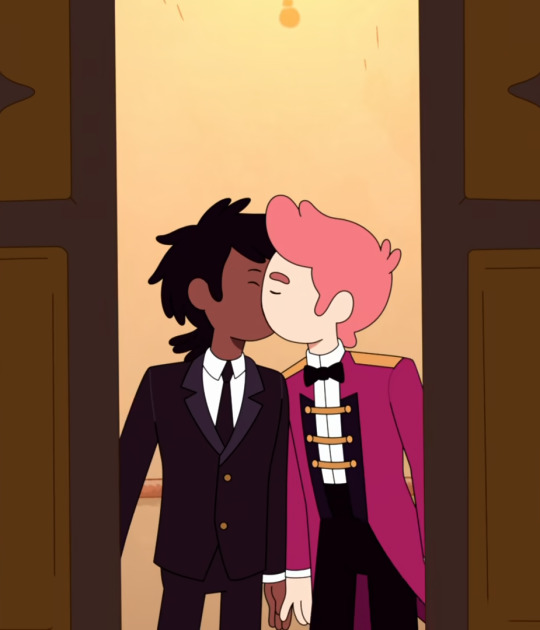
#book of kells#fionna and cake#gumlee#garylee#marshall lee abadeer#marshall lee#gary prince#lgbt#lgbtqia#lgbtq community#interracial love#lgbtq#queer representation#poc representation#<- dont like the phrasing of that but that's what the popular tag is :/#gay men#gay representation#mlm representation#mlm
60 notes
·
View notes
Text
carson and max’s friendship is just such a beautiful liminal space. a breath of fresh air. i feel such peace when they’re on screen together, even when conflict or tension is present. they are who the other person needs at this precarious and beautiful moment in time and in each other’s lives. they are uniquely capable of understanding each other as queer humans exploring themselves, the weight of others’ expectations, a true love for sport that feels entirely natural to them and looks entirely unnatural to their societies. in a lot of ways, it seems like baseball is the only thing that ever came naturally to either of them - despite being the most visible, queer, and subversive thing they could have done since childhood.
max offers carson an authentic friendship, a safe place to talk about greta and charlie, a necessary challenge to her blind spot around race, and the chance to see a glimpse into the world beyond her small-town upbringing in idaho. max is a safe place to explore the inner workings of her experience as greta completely changes her world.
carson offers max perspective about heteronormativity and whiteness and is sort of a foil for considering who she really is and what she really wants. though she isn’t running away from a husband, she is running away from the same kinds of expectations (though the risk of refusing the path laid out by her mother is likely higher as a Black woman that what carson faces). they have such a beautiful queer kinship - different from one another in so many ways, yet inexplicably finding themselves in one another’s orbit trying to sort out the universal, queer challenge/opportunity of finding oneself and actively creating the life you want to live.
those quiet conversations after a catch remind me of the best, deepest, heart talks i have had with my dearest friends. time stops, the world stands still, and you feel more alive than you ever have before. and then - it’s over, and you have to go back to real life.
62 notes
·
View notes
Text
very weird thing to experience being mixed and queer,
so many queer spaces and people online have no idea what to do when faced with a queer black person, there's little comprehension of how one's ethnicity and the concept of race refocus blackness (and everything, really) and how queerness refocuses blackness ~__~;;
native queerness is just about a misunderstood novelty,? i think is an okay way to put it? no, two-spirited are not just your native equivalent to trans folk., guh. granted i see that less than i used to so i will be grateful.
being both of the above and being able white is. Interesting. my mixedness has impacted my whiteness my entire life, people usually assume i'm white and haven't always responded wonderfully to my being a more ambiguous white-passing mixed person,. "white" has never been an answer i can settle for because it's incomplete, yeh? around the time i began discovering and becoming of my queerness what & who i am was Not relevant to me at all, ethnicity wasn't a thing of importance, and my general understanding of things was from a perspective of "race". if anything, i was just a white queer, at first i bought into lesbian and transmasc stereotypes way too much for my own good, and later on i wanted to look like the pale, skinny white guys with fluffy hair way too much for my own good. when my mixedness became a true thing of value to me and became a thing i started working to understand, it effected my whiteness first and overtime my idea of "race" ultimately began to deconstruct. "white" had never meant anything to me, but now it meant even less., which was Odd. the more i lost from nothingness, the more whiteness became a Pit, in many ways basically. ehn. i couldn't be a white queer anymore because by God if i were a white queer, white queers were not Me,. my whiteness became my irishness, my slavicness, my germanness, jewishness (?)), etc. and thus it was through those things i was queer and through queerness i was those things. or sSomething.
never in my life will i probably ever fully relate to other black or native queers and i'll never relate to white queers at All, lol. All In All; white queers do NOT know how to act around queer poc 🗣️ of the many white queer friends i've had and of the fewer queer poc friends i've had, being the outsider amongst white queers has been one of my greatest misfortunes. Alas,
EDIT: i remembered i wanted to say somethin g like; the white queer's only threat of discrimination and threat to safety is because of their queerness in a society made for them, otherwise they are fine. their threat to security and privilege comes from exposure, queerness can't truly be determined from the outside. there's safety so long as you're perceived as cishet
for poc, there is no escape from exposure, and so there's no real way to guarantee safety or hiding. revealing your queerness or having your queerness revealed is an even further threat to you. (in my own case [ambiguity/yt-passing], exposure isn't the most definite answer as to what you are, so now there is fear in being confronted about what you are, being honest about what you are, etc. ambiguity is a very uncertain risk, being visibly non-white is a very uncertain risk, it is a guarantee that you will be treated differently.)
#brutus.txt#i forgot the original point of writing this but i had some steam to blow after the james baldwin post#idk yt queers are. definitely people i've been around before and every other week i'm fed up with the#them*#this post means nothing it's just words I Think#idk man
1 note
·
View note
Text
yEET-
ALIVE!AU HEADCANONSSSSSS:
Evan:
16 years old, sphomore year of high school.
Still occasionally bullied and teased, but is considered by many to be ‘very beautiful’ by many standards.
Aroace male-presenting enby, he/him/they/them (says “I’m queer and 60% boy” and 50% of the time refuses to elaborate). Absolutely wears a black and white ring on both his ring fingers.
Acts way older than he actually is.
Still is strongly spiritually synonymous with butterflies and lepidopteran creatures- sometimes when people find him in nature or in a garden, butterflies or moths are fluttering around him and are attracted to him.
RIDICULOUSLY prodigious and inspiringly hardworking, insightful, strategic and incredibly pattern sensitive- learns new things relatively quickly, planning and solving problems with incredible accuracy and meticulousness, and accurately reading the people around him and discerning their true intentions. He also develops the ability to be impressively adaptable to changing circumstances, though inconveniences do irk him greatly depending on the severity.
Primarily an engineering and mathematics genius, STEM teachers absolutely love him lol. He’s also one helluva nerd- special interest is now computers. Strings of information and numbers tend to fascinate him, and he often experiments and tinkers with programming, machinery and software to produce different outputs.
Wears whatever tf he wants whenever tf he wants, doesn’t give a shit as long as its comfy and stylish.
Has elongated, visible scars on his wrist and stomach from… the incident.
Very clearly neurodivergent (I would say high functioning autism but functioning labels are basically garbage lol), selectively inattentive, detail oriented.
Went from severely depressed to only mildly depressed due to medication and therapy starting from when he was eleven. Insomnia has significantly decreased as well, and now he is on a semi-reasonable and consistent sleep schedule.
VOCAL TICS~
Has significantly more confidence than before, and demands respect and recognition where it is due.
Still retains an incredibly sagacious and secretly kind personality with REALLY high and palpable levels of empathy.
Stims frequently, occasionally has sensory problems, although he’s learned to make it more discreet (fidgeting, pressing his knuckles, tapping his heels/toes rapidly, colliding his ankles together and swaying his legs back and forth, chewing gum, humming, rapidly clicking pens, keyboard typing, etc.) Favorite stims include sleeping on soft fabric, weighted blankets and listening to other people’s heartbeats and distant thunderstorms.
No longer suppresses his naturally witty and snarky attitude. Either is surprisingly snide and brusque, or is cryptic, astute and speaks in riddles.
“Now you’re talking about the theory of how if dinosaurs must’ve existed, dragons must’ve existed? Why can’t you talk about normal things?” ||| “I do not control the hyperfixation.”
Has developed a vast repository of vocabulary and coherency he uses in his words, and speaks with fluency, blunt directness, and incredible intensity and passion, and this can make other people his age not want to socialize with him due to their more casual tones. (doesn’t give a shit anymore lol)
“Aiy-yai-yai… was I… rambling?” ||| “Strange that it took you an hour to notice. But yes.”
Needs to mentally rehearse making a phone call to people before having their social battery burnt out entirely.
HATES Papayas and Kombucha tea. Get those monstrosities far away from him.
***
Elizabeth:
13 years old, 8th grade.
ADHD-PI. Need I say more?
One moment is ‘I simply wish to enjoy a hot cup of milk on a rainy afternoon’ and another moment ‘RRRRRREEEEEEEEEEEEEEEEEEEE-’
Hyperfocus tends to shift from time to time. Primary interests include botany, sewing, fashion, cooking, baking, biology, bonsai, gemstones, and history.
Spiked maturity/emotional growth primarily due to both Evan’s and her mother’s guidance, as well as the positive influence of elders around her willing to guide her, believe in her and correct her when she goes astray.
Pan-oriented demisexual demiromantic (yes I made her aspec because I fUCKING can/lh)
Like Evan, she has an incredible imagination, plus a REALLY BAD hoarding habit. He hoards computer chips, books, plushies, papers, school supplies and mechanical and engineering equipment- she hoards antiques, jewelry, dolls, quilts, dresses, flowers, plants and vinyls.
Geeks out with Evan over topics like language, philosophy, psychology, geography, literature, gemstones and the biology of bugs, yet they are both still very much scared of them and sing-song-scream-cry whenever there’s a bug in the room, save for butterflies.
Physically INCAPABLE of sitting still.
VOCAL TICS 2.0~
Also ridiculously prodigious and insightful, a history and biology buff with an eye for antiques (BURNT OUT GIFTED KIDS ASSEMBLE)
Also stims a crap ton. Sometimes teachers swear her leg taps itself against the ground so fast it’ll soon vibrate and be able to phase through walls.
Shit memory lol, equally shit at rhythym games.
Has amusia (is tone-deaf).
Copies patterns and mannerisms from other people and adopts smidgens of both her mother’s personality, her own, as well as Evan’s, coming across as well as sarcastic and witty.
Possesses an INCREDIBLY strong bond with her brothers- seriously, the Afton siblings are a package deal hurt one and you die with the Dark Souls death screen hovering over you (and the kids dancing on ur grave lmao)
Time management? Memory? What blasphemy do you speak of?
“Ah, no, yeah- okay, this shouldn’t take but a moment. Between an hour and a half, and, uh… an estimated two weeks.”
Also feels VERY deeply and strongly about topics she is passionate about, and feels a personal sense of either gratitude or revenge to people who have either helped her or wronged her, respectively- unlike Evan, who sees only the most dangerous traits in people, yet begrudgingly knows and believes that there are unseen reasons behind their true nature.
Elizabeth during class: “Yeah, uh, can you repeat the part of the stuff where you said all the things?”
Like Evan, she has an ‘all-or-nothing, do-or-die’ attitude, frequent and uncontrollable stimming and fidgeting, and a difficulty in social situations. She is very extroverted and sociable, yet has a tendency to become overexcited and excessively hyperfixate, and it is because of this that when people tell her to ‘just focus’ or ‘try harder’ she becomes IMMENSELY frustrated because ‘I KNOW’.
She also has some symptoms of executive dysfunction, doesn’t have a filter when she speaks, and never maintains eye contact, instead glancing around everywhere to avoid discomfort.
Loses shit RELENTLESSLY-
She’s the type of person to go to Target to buy toothpaste, then comes back with a receipt for $218. Everyone facepalms, while Evan understands her.
#Evan Afton (CC/BV)#Elizabeth Afton#Alive!Aftons AU#FNAF-verse AU#crying child fnaf#crying child#Afton siblings#headcanons coming up for Mike too lol
33 notes
·
View notes
Text
Let me tell you a little story. Back in the day, we used to have threads on the Asexuality Visibility and Education Network forums (A.V.E.N.) where we asked each other the question, “Do you consider yourself queer?”
About half of the answers were No. And this wasn’t just because we were at times shunned from queer spaces. We just didn’t consider ourselves queer, full stop. Even if you had given us a golden ticket pass directly into acceptance by the LGBT community.
Some felt no desire to even enter said spaces, or shrugged when they got there.
Some felt specifically uncomfortable because there was such a focus on sex/sexuality.
Now, people who were gnc or homoromantic obviously often said Yes. But that was usually separate from their identity as an ace spec or aro spec.
I’m similar. I have dithered for long periods of time over whether to identify as queer. I don’t view my ace identity as queer. I can construct an argument for it to be considered queer, based on the history of “queering,” which means deviation from norm. This of course, is how the term QueerPlatonic Relationship, qpr, is derived. And in that context, yes aro is explicitly queer. I will vehemently defend those who want to use aro or ace that way. But I will equally as vehemently defend those who want to self-determine, (as in, not allo people enforcing it) view ace and/or aro as a separate issue altogether, who don’t feel totally fitting with allo people, queer or not.
I’m non-binary like that.
Language is a construct.
Language can be ambiguous, have different associations in different subcultures, mean one thing to one person and another to another person.
Language itself is inherently non-binary, non-black-and-white.
I identified as totally agender for a long time (enby identities are common among aces). Now I understand myself as “most of the time agender/enby but leaning transmasc” kind of genderfluidity. I find that even though transmasc is the word that the culture has settled on that got nearest to describing me, so I am sort of obligated to have it because of usefulness, I do not quite vibe with “trans,” neither as this- nor as an umbrella term, but prefer “gnc” as the collective name for non-sexuality queerness.
LGBG, as it were.
Now, GSRM or MOGAI are obviously better, let’s note. Less awkward, less hierarchical/seniority-centered, more bases covered.
But this still causes problems for me in particular. I believe that most people would be agender or bigender or non-binary, absent heavily gendered social conditioning. So that “M” in GSRM suddenly isn’t numerically accurate for norms in a post-gender society of the future. I think binary homo (mono-sexuality) as in gay, lesbian, will always the sexuality minority, but have strong suspicions that bi (or multi- or whatever else you prefer) would be the majority (or mathematical norm, if you will) if heteronormativity were absent as well.
Especially if you included other types of attraction other than romo- or amato- attraction, as well you should.
Been thinking about “oriented aro/ace” and its implications to allocishets as of late:
In a post allohet society, I think most people would recognize and more deeply venerate the fact they had strong platonic (and possibly, even more subtle demi) attraction to the same-sex or same-gender alongside their more flashy het attractions.
(Ironically, similar sentiments lead to things like people objecting that demi “is normal” and shouldn’t be considered an identity in itself, for those who don’t experience primary attraction. Said people sometimes fit the description of demi themselves, just won’t accept the label. Demi could be quite common, and it’s not lesser, it doesn’t lose uniqueness points or something, for being a larger presence)
In this post society, relationships, including QPRs and PLPs and/or marriages on that basis- more than already happen- would form. People like those who have realized, oh yeah, I’m still falling in love with xyz people, but this friend is the one or ‘also-someone’ I want to commit to.
But even for romo, humans are extremely good at deflecting and repressing.
(Romance is in itself a construct. You especially tend to see this come into focus in aro discussion groups, trying to figure out what it even is and what parts comprise it.)
The way I think, as it’s typically used, “queer” is not a minority at all, but a label that emerged to designate itself as a reality beyond cis-het normative societal structures.
Had we never developed the allo-cis-het-patriarchal conditioning nexus, queer would not exist.
In other words, “queer” is born out of this presence, in reactionary fashion.
Now, for the present? That isn’t a problem. It’s useful, it’s linguistically sound, probably necessary, depending on how you define “necessity.”
But I look forward to a day when the word “queer” loses all its current cultural meaning and power, because it’s just ... entirely ordinary. No different from saying you have brown eyes. Even if minorities stayed at levels they are.
Once that has eroded, the “queering” of norms is complete, and with the norms gone, ironically “queer” ceases to be.
Now if we defined “queer” as what appear to be true minorities? That’s an entirely different question. One that I’m not gonna do any more of a deep dive on atm.
I don’t personally believe those parts make me an outlier. Aro? Aplatonic? Most definitely. The aspects of me, as in my gender, that are “queer” as it’s used in ace-exclusionary meaning? Nah. If I were binary trans? Yeah, probably. But all the rest, masc and femme and everything in between, I think those are the normal human experience. To quote someone somewhere on the topic, “Most human beings aren’t Barbie or G.I. Joe.”
Those gender spectrums are just ...... not queer, to my mind.
Regardless of chosen definition, I don’t and have never centralized “queer” in my identity even though it’s a nice shorthand, especially in- ahem- queer spaces.
Some textbook-definition lgbtq choose not to use the word for non-slur-related reasons. Just because they don’t vibe with it.
To be perfectly honest, I have passions and hyperfixations that are worlds more important to my identity than my gender or my sexuality. Is that because agender inherently means (to me personally!) that I’m not hung up on gender, and being gray ace (to me) means I’m not hung up on sexuality? Maybe! Idk. Either way, it’s how I think.
It is not very important to me that people of any walk of life see me as queer.
I’m just me, doing my thing, any word you apply to me is incidental.
So am I queer? Depending on context, yes or no. I’m non-binary like that.
#asexual#lgbt#asexuality#aromantic#aromanticism#asexual spectrum#transgender#lgbtqia#pride month#queer#discourse#queer platonic relationship#platonic life partners#PLP
6 notes
·
View notes
Text
12/14 day 1: assumptions and stereotypes
i suppose day 1 is as good a day as any to reflect on my spiritual journey. i have a relationship to spirituality that i don't fully grasp yet, but it's something i have been thinking about more and more in recent years. i grew up in the southern baptist church (i'll name drop, it was bear creek baptist church in katy, texas) and it was a miserable experience for queer person. you all have heard this story before, evangelical christianity has historically been not the kindest space for queer individuals. me and my other visibly queer friend (who grew up in the same church) were constantly on the receiving end of bullying and even death threats from members of the church. but being raised in the church was not all bad. because my parents decided to raise me in that particular church, and my best friend's parents decided the same (we lived in different parts of houston and likely wouldn't have otherwise met) i was also exposed to queer ways of being. that friend was my first exposure to modes of living outside of the church that i was raised in. he introduced me to new modes of sexuality and sexuality, of media, of enjoying art, and in doing so he set me on the journey i currently find myself on.
after coming out publicly i left the church i grew up in, for my safety i really had to. and for a while i held bitterness in my heart towards both religion and those that practiced it. not only did i grow up in the baptist church, but i grew up in an upper-middle class white family from in the suburbs of houston. my childhood exposure to what life could be and what life should be was so tightly constricted. it was the white picket fence and the four-person nuclear family and the heterosexual relationship and christianity and a lack of care for your neighbors in pursuit of personal glory. i didn't yet have the words and tools to advocate for myself and for other modes of being, but i knew that my mom's dream for my life didn't fit with what i was dreaming about: dragons and science fiction and kissing other girls and magic and superheroes and the hit fox television show glee. but those didn't fit into the spiritual framework that had been forced upon me in my childhood. so for a while i rejected religion as i had no touchstone for spirituality other than evangelical christianity and that wasn't vibing with me. in search of truths about the world i overadjusted into the only other thing i knew, science. but this was a white supremacist science, a science borne of experimenting on enslaved women and on black and brown children and of eugenics and the supposed empirical justifications upon which the western white supremacist world has built an "other" against which their superiority might be measured. and so for a while i took the stance of the pessimistic athiest decrying religion and its practitioners, thinking them foolish for having faith in something that couldn't be proven, not realizing that the form of science i believed in was itself far from empirical truth - if such a thing even exists.
at this point i must explain that my mom separated me from any family history i had. growing up i had no access to family outside of the nuclear, no grandparents, no aunties and uncles, no intellectual or spiritual tradition/legacy. and as we all know, white is not a culture. i had nothing in the real world to turn to in order to get me through the most excruciating years of my life. so i turned to the otherwise. and i did not yet have the language to so eloquently explain this connection, but this is the reason i spent my childhood with my nose buried in as many books as i could get my hands on. it was my way of imagining the otherwise, a world where my queerness might not just be okay, but also a source of strength for both myself and those i was in community with. i found spirituality in alagaesia and in charlie bone's world and in the hyperion cantos.
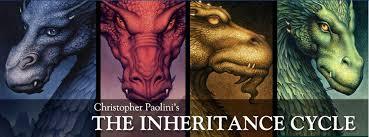
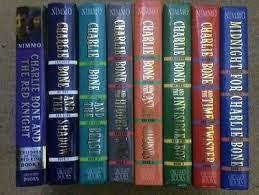
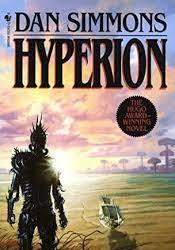
and i found spirituality and meaning in music.
i found it in the orchestral swell of luxury and the lyrics "please don't let my soul drown in luxury"
i found it in wonderland
i found it in community and in something bigger than what i alone had to offer the world
and i found it in the cosmos
i have found it most recently in scholars writing from lived experiences far different from my own. i don't have a label for my spirituality, but i draw from the stages of grieving and healing represented in conocimiento, i draw from nepantla and from the idea of a world weave which i can give into and imbue with love, i draw from anzaldua and from the west africans in kevin dawson's undercurrents of power who found the strength to outwit american slavery through water. training as a historian has put me in close proximity to so many new (to me) ways of being, of loving, of putting good out into the world. i take care to not appropriate, but appreciate, and respectfully draw meaning from the writings and musings and artistic expressions of those who have imagined an otherwise. it is there from which i draw my spirituality.
i write this after years of therapy and reflection, but i truly have an open mind and heart going into this course. there would have been a time where rudy's practice of santeria would have been incongruent with my small and inflexible world view, but that time is long past and i look forward to learning from him and from each of the expressions of life we will encounter in this course.
0 notes
Photo
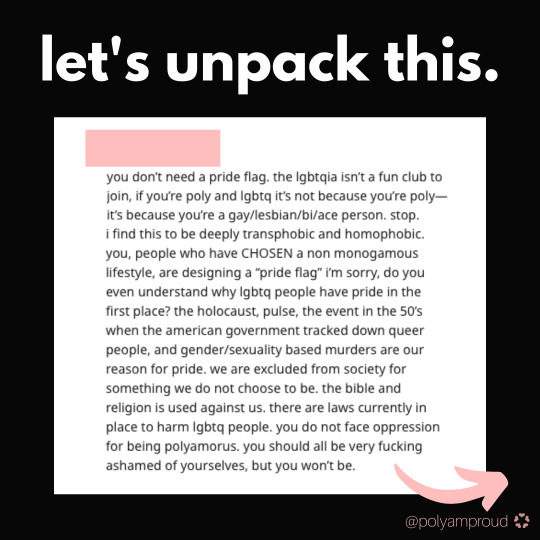
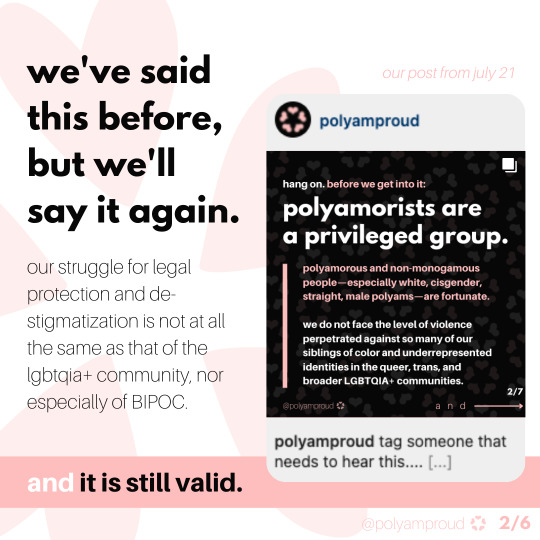
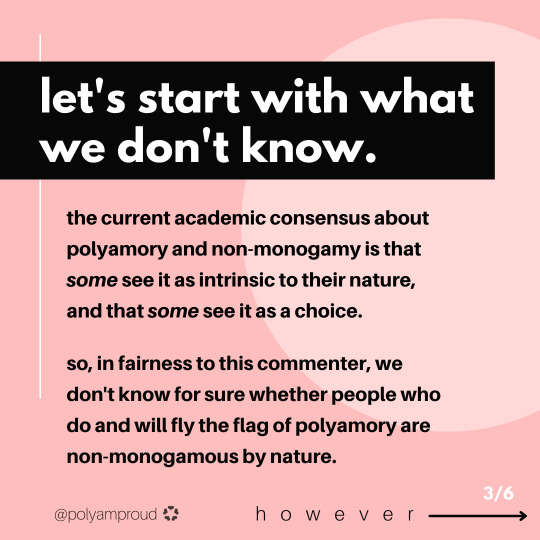

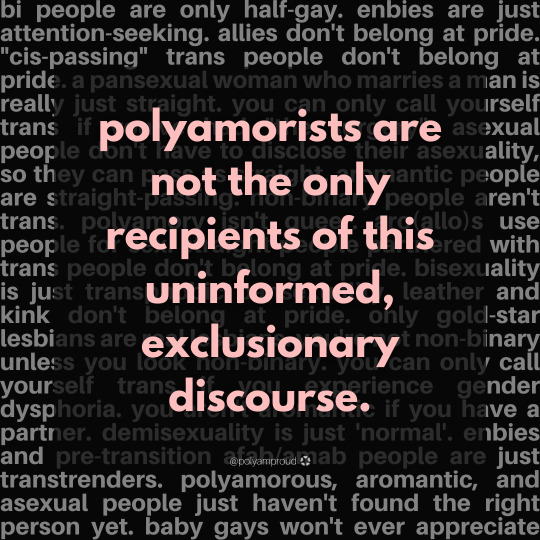

Few things we should make clear:
☝️ We listed some of the many ways in which polyamorous and non-monogamous people face discrimination and stigma in our post on june 21. If you haven’t looked at that, please do.
✌️ It sucks having to justify one’s belonging. This commenter is essentially demanding proof of polyamory’s queer+ pedigree. You don’t need a certification to have a pride flag, nor to bring one to pride, nor to be at pride.
��� Some in the lgbtqia+ community don’t want polyamory involved in pride because in their estimation 1) our recognition and visibility will dilute or reduce theirs and 2) if people who choose polyamory can be present at pride, queerness and pride will become less legitimate.
✌️✌️ Polyamory and non-monogamy are an affront to an existing and pervasive sociocultural standard. An unbelievable majority of media is created with monogamy as a systemic default, and with deviations from that default as immoral, or worse. Living polyamorously by choice or by nature parallels and exists within the larger queer experience that pushes against inherited convention and seeks acceptance.
🖐 As polyamorous people, we must continue to champion the voices of the unheard. if you identify as polyamorous and do not stand at the intersection of other underrepresented, underserved, or oppressed identities. Be cognizant and thoughtful of the way you wield that privilege. This community is much bigger than you.
~image description below~
[Image Description: A set of 6 images. All text is in lowercase letters.
Image 1: An image with a black background. At the top of the image is big, bold white text which reads “let’s unpack this.” Beneath it is a screenshot of a comment, with the commentor’s name censored by a pink box. The comment is in black text and reads “you don’t need a pride flag. the lgbtqia isn’t a fun club to join, if you’re poly and lgbtq it’s not because you’re poly- it’s because you’re a gay/lesbian/bi/ace person. stop. i find this to be deeply transphobic and homophobic. you, people who have CHOSEN a non monogamous lifestyle, are designing a “pride flag” i’m sorry, do you even understand why lgbtq people have pride in the first place? the holocaust, pulse, the event in the 50′s when the american government tracked down quee people, and gender/sexuality based murders are our reason for pride. we are excluded from society for something we do not choose to be. the bible and religion is used against us. there are laws currently in place to harm lgbtq people. you do not face oppresion for being polyamorous. you should all be very fucking ashamed of yourselves, but you won’t be.” At the bottom right of the screenshot is a curved pink arrow pointing to the right towards the next image. Below the arrow is the “@polyamproud” watermark and the polycule symbol beside it in pink.
Image 2: An image with a white background. At the left side is big bold, left-aligned black text which reads “we’ve said this before, but we’ll say it again.” Beneath it is smaller, thin black text which reads “our struggle for legal protection and destigmatization is not at all the same as that of the lgbtqia+ community, nor especially of BIPOC.” At the right side of the image is a screenshot of one of our earlier posts going over why polyamorists need a pride flag. The screenshot is that of an image with a black background with a gray polycule pattern in the background. The main focus lies on the text explaining everything in the middle which features big white text which reads “Polyamorists are a privileged group.” In the middle of the image, to the left side of the image is a thick pink, vertical line. To the right of the line is pink text which reads “polyamorous and non-monogamous people - especially white, cisgender, male polyams - are fortunate.” Beneath it is white text which reads “we do not face the level of violence perpetrated against so many of our siblings of color and underrepresented identities in the queer, trans, and broader LGBTQIA+ communities.” At the bottom of the screenshot is part of the caption of the post which is in black text and reads “polyamproud - tag someone that needs to hear this...” Beneath the screenshot is a pink box extending from the left side of the image to the right side of the image. Inside the box is bold white text which reads “and”, immediately followed by bold black text which reads “it is still valid.”
At the bottom right of the image is the “@polyamproud” watermark and the polycule symbol beside it in pink. Next to it is pink text which reads “2/6”, indicating the image number.
Image 3: An image with a pink background and a big pastel pink circle at the right side of the image which is slightly cut off at the right side. At the left side of the image is a thin, vertical white line, taking up about half the image. At the top of the image is a black box extending from the left. Inside the box is big bold, left-aligned white text which reads “let’s start with what we don’t know.” Beneath it is smaller, bold balc text which reads “the current academic consensus about polyamory ans non-monogamy is that”, followed by italicized text which reads “some”, followed by more text which reads “see it as intrinsic to their nature, adn that”, followe by italicized text which reads “some”, followed by more text which reads “see it as a choice.” Beneath it is more black text which reads “so, in fairness to this commenter, we don’t know for sure whether people who do and will fly the flag of polyamory are non-monogamous by nature.” At the bottom right is white text which reads “3/6”, indicating the image number. Beneath it is some small black text with the letters spaced out from one another which reads “however”. To the right of it is a black arrow pointing towards the right. At the bottom left of the image is the “@polyamproud” watermark and the polycule symbol beside it in black.
Image 4: An image with a black background. At the middle right side of the image is a pink circle, which is slightly cut off at the right side. At the top of the image is big bold, left-aligned white text which reads “the origin of your polyamory is irrelevant to your right to.” Followed by some bold black text which overlaps with the pink circle which reads “exist.” Beneaht the text, to the left side of the image, is a thin, vertical pink line which is as long as the bottom half of the image. Next to the line is small bold, left-aligned white text which reads “whether you were born polyamorous or you’ve found your way to this community through investigation and exploration fo yourself, you deserve the right to be treated as a human being.” At the bottom right of the image is a pink arrow pointing to the right. Beneath it is the “@polyamproud” watermark and the polycule symbol beside it in pink. Next to it is white text which reads “4/6”, indicating the image number.
Image 5: An image with a black background as well as wall of gray text. The text in the background is made up of many different exclusionary lines for many different sexualities and gender identities. On top of this, in the middle of the image is a black square at a lower opacity. In this square is big bold, centered pink text which reads “polyamorists are not the only recipients of this uninformed, exclusionary discourse. At the bottom of the square is a small “@polyamproud” watermark and the polycule symbol beside it in light gray.
Image 6: An image with a black background. At the bottom right of the image is the pink outline of a hand with painted nails and a nail polish brush floating above it alongside some sparkles. At the top of the image is big bold, left-aligned white text which reads “we may not be fighting against our oppression.” Beneath it is smaller, bold pink text which reads “but we are fighting for acceptance.” Beneath it is small, thin white text which reads “by choice or by nature, we love who and how we love. and, on behalf of polyamorists and non-monogamists everywhere, we’d like to thank this commenter for reaffirming our mission.” Slightly beneath it is more text which reads “this is exactly why we’re working so hard. to increase our visibility and grow awareness of polyamory and ethical non-monogamy through the use of a new and inclusive pride flag.” At the bottom left of the image is the “@polyamproud” watermark and the polycule symbol beside it in pink.
End ID.]
#polyam#polyamorous#polyamory#polyam pride#polyamorous pride#pride#polyamory pride#polyam flag#polyam pride flag#polyamorous pride flag#polyamorous flag#pride flag#lgbt#ethical non monogamy#non monogamy
31 notes
·
View notes
Note
Hey Ruth! I noticed you've talked in the past about asexuality in quite a negative manner. As an ace-person (who has received backlash for it) I was wondering: do you still uphold these opinions?
Hey! I have in the past said I don’t really...like people popping up in my ask box asking me My Opinion On Asexuality, but I do appreciate you asking me as someone I kinda know and with your face turned on, so I’m gonna aim to answer in the macro. Though I mean it depends on what the opinions...are? I have had a lot of opinions over the time I’ve had this blog and I don’t necessarily know what all of them were or which ones have concerned you. I can give you a top-level view of how I see my views, though (however, since I have been largely holding off on answering this kind of ask for Literally A Year Now this is less an answer to your specific question and more an answer to the last year of asks)
(also if I get dogpiled in my inbox for Having Bad Asexuality Opinions which I do every time I talk about asexuality regardless of what I actually say then. my phone is broken I won’t know about it :) so I feel untouchable)
I don’t think I hold a negative opinion of asexuality as an identity (I say I don’t think bc we all have blind spots)? I have a lot of very important people in my life who are asexual, aromantic or aroace and. I mean it feels pretty condescending to say ~uwu it’s valid~ bc like. ace and aro people don’t really need my input to validate their identity. but a) it seems like a pretty accurate way to describe their experience and b) I know a lot of them have had a really huge boost from finding a name and community to fit their experience and have found that really helpful, and I’ve seen that make a huge difference in people’s lives and I’m really happy to watch my friends come to understand themselves and feel comfortable and accepted in a part of themselves they had felt really alienated or stigmatised by. In a broader sense, I think there’s huge value in decentralising romance and sex in our assumptions of What Human Happiness Means and for some people that’s not the most important thing, and for some it’s just not interesting.
So like. I find it difficult to really express these opinions in any meaningful way because my opinion on asexuals and aromantics is much like my opinion on trans people or idk like people of colour. like very obviously those people exist and very obviously those people don’t deserve to be marginalised or stigmatised but it would feel. weird and performative to just make a post saying like “Asexuality Is Good And Valid, I Am Pro It” bc again like. who needs my permission or cares about my opinion. it’s not a Good Thing To Do it’s just. a thing you are that shouldn’t be treated as a bad thing.
however. and I suspect that this is what you’re referring to. while I love and appreciate ace and aro people, I think building communities and active support for ace and aro people is valuable and needed and, as above, I think Asexuality Is Good And Valid I Am Pro It, I do take some issue with elements of how discussions around asexuality are framed online (pretty much only online, I really haven’t run into the kind of black-and-white thinking in in-person queer spaces)
and I also. think there are some issues with people extrapolating their experience of their own sexuality onto the world in a way which. I’m just going to say a lot of the time when I talk about The Ace Discourse in a negative way it’s around people assuming that the world is split into a binary between ace and allo people, or assuming that only aspec people experience a nuanced or complex or fluid relationship to their sexuality while pigeonholing allosexuality into a pretty flat image of sex and romance focus. and I have always felt like this does a massive disservice not just to people who don’t identify with aspec labels, but also to the general hope that we could work against the expectation that there’s a Standard Amount To Value Sex/Romance - I think that the assumption that there are aspec people and then Everyone Else Has The Normal Type and Level of Attraction just. reinforces the idea that there’s a “Normal” type and level of attraction. which is ultimately pretty self-defeating and also just. observably untrue.
and this division of the world into Aspec People and Allo People also has some other weird knockon effects - I don’t think there’s anything intrinsically wrong with identities like gray ace or demi or other aspec labels beyond asexual and aromantic, but I do think that the way those labels are used is often. unhelpful. and they’re defined in such personal, subjective ways that you get weirdnesses sometimes like people Diagnosing Each Other With Demisexual or people saying ‘you can’t talk about this experience you share because it’s an Aspec Experience’ and again. there isn’t a concrete material experience there because the whole experience of romantic and sexual attraction, what that feels like and how sharply divisible it is is very, very personal and subjective. and everyone has different experiences of those and will name those experiences differently.
there’s also. historically a minority of Big Ace Blogs that kind of sneer at allosexuality or who would hijack posts about other issues to derail them to asexuality. but I don’t think they were ever representative of the community as a whole and I certainly think that inasmuch as those blogs remain around they’re a legacy of the Long-Ago (and a lot of them are trolls imo)
but there is. an issue I take that does seem to be more currently live which is the question of allo privilege. I think personally that framing all allosexuals/alloromantics as privileged over all aspec people on the basis of feeling sexual/romantic attraction is provably untrue in a world where people, particularly queer people, are actively oppressed and marginalised for expressing non-normative sexuality. it isn’t that I don’t think asexuality and aromanticism isn’t marginalised and stigmatised, because it visibly is, but it seems pretty reductive to boil it down to a binary yes/no privilege when both sexualisation and desexualisation are so actively tied into other forms of marginalisation (this is what I was trying to express in the argument about Martin a while ago - sex and sexuality are so often disincentivised for fat, queer, disabled and neuroatypical people that it doesn’t...feel like a reclamation that those tend to be the characters that get fanonised as ace where slim, straight, able-bodied and neurotypical characters aren’t. like it’s more complex than a binary privilege equation; sex and romance are incentivised and stigmatised differently at the intersection of oppressions and. for example. in a world where gay conversion therapy and religious oppression of gay and SGA people is so often focused specifically on celibacy and on punishing the act of sexual attraction, I don’t think it’s a reasonable framing to say that a gay allosexual man has privilege over an aroace man on the basis of his attraction)
so those are like. things I would consider myself to feel actively negative about in online discourse (and again. in online discourse. not in how I relate to asexuality or aromanticism or aspec identities in general but in the framing and approaches people take towards discussing it in a very specific bubble).
but also. um. the main criticism I have of the online discourse culture of asexuality is that there are things I don’t have experience of that I have mentioned, when asked, that I don’t personally understand the meaning of but I don’t need to understand them to appreciate that they’re useful/meaningful to others. things like
the difference between QPRs, asexual romantic relationships and close friendships
how you know the difference between romantic attraction and friendship
the distinction between sexual attraction and a desire to have sex with someone for another reason
and I hope I’ve generally been clear that this is. honest lack of understanding and not condemnation. I personally have a very muddled sense of attraction and often have difficulty identifying the specifics of any of my own emotional needs so like. it’s a closed book for me at the moment, how you would identify the fine distinctions between types of want when I’m still at step 1: identify That You Want Something Of Some Sort, Eventually, Through Trial And Error. but I think I’ve always been explicit that this isn’t a value judgement it’s just a gap in my own knowledge and yet. every single time I’ve said anything other than enthusiastic “yes I understand this and I love it and it’s good and valid” (and again. I have not gone out of my way to talk about it I have mostly only mentioned it because people keep asking me to talk about it) I have got a massive rush of anger and accusations of aphobia and “just shut up if you don’t know what you’re talking about but also answer my 30 questions to prove you think Correct Things about asexuality” and. I understand that this comes from a place of really unpleasant and aggressive backlash towards the ace community so it’s a sensitivity with a lot of people but like. it doesn’t seem proportional.
also I feel like ever since I hit like 700 followers my Tumblr life has been a constant cycle of people asking me Are You An Ace Inclusionist Are You An Exclus Are You An Aphobe Justify Your Opinion On Asexuality which. eventually yeah I’ve got pretty snippy about the whole thing. but you know. fuck it I’m just gonna lay it out and if you or anyone else is uncomfortable following me based on those opinions then I’m sorry to hear that and I will be sad to see you not want to engage with me any more but I also think that’s absolutely your prerogative. however I will not be taking questions at this time (and not just bc my phone’s broken) - demands for an argument about this Are Going To Be Ignored so if you want to go then go.
so like the big question I reckon is Do You Think Asexuality Is Queer and
yes. no. maybe. I don’t understand the question what does it mean for an identity to be queer?
there are spaces and conversations where any form of aromanticism or asexuality makes sense as a relevant identity. talking about hegemonic expectations of normative romance. building community. combatting the idea that heterosexual missionary married sex between a man and a woman is the only rewarding or valuable form of relationship or intimacy.
there are spaces where I think heterosexual aros/heteromantic cis aces don’t. have a more meaningful or direct experience of the issues than allo cishets. because while being aro or ace or aspec has a direct impact on those people on a personal and relational level, disclosure is largely a choice, and the world at large sees them as straight. they don’t have the lived experience of being visibly nonconforming that SGA people and aroace people do. they may still be queer but there’s a lot of conversations where they bring a lot of the baggage of being Straight People (because. even if you’re ace or aro you can still be straight in your romantic or sexual attraction and if your relationships are all outwardly straight then you don’t necessarily have an intimate personal understanding of being marginalised from mainstream society by dint of your sexuality). this doesn’t make you Not Queer in the same way that being a bi person who’s only ever been in m/f relationships is still queer, but in both cases a) you don’t magically have a personal experience of societal oppression through the transitive properties of Being Queer and b) it’s really obnoxious to talk as if you’re The Most Oppressed when other people are trying to have a conversation about their lived experience of societal oppression. and they’re within their rights to say ‘we’re talking about the experience of being marginalised for same gender/non-heterosexual attraction and you’re straight, could you butt out?’)
(I very much object to the assumption coming from a lot of exclus that “cishet ace” is a term that can reasonably be applied to non-orientated aroace people though. het is not a default it really extremely doesn’t make sense to treat people who feel no attraction as Straight By Default. when I were a lad I feel like we mostly understood “asexual” to mean that identity - non-orientated aroace - and while I think it’s obvious that a lot of people do find value in using a more split-model because. well. some people are both gay/straight/bi and aro/ace, and it’s good that language reflects that. but I do think it’s left a gap in the language to simply refer to non-attracted people. this isn’t a criticism of anything in particular - there’s a constant balancing act in language between specificity and adaptability and sometimes a gain for one is a loss for the other)
some queer conversations and spaces just. aren’t built with aces in mind. and that isn’t a flaw. some spaces aren’t built with men in mind, but that doesn’t mean men can’t be queer. some conversations are about Black experiences of queerness but that doesn’t mean non-Black people can’t be queer. not all queer spaces will focus on ace needs but that doesn’t mean asexuality isn’t queer, or that queerness is opposed to aceness - sex, sexuality, romance and dating are all really important things to a lot of queer people, especially those whose sexuality and romantic relationships are often stigmatised or violently suppressed in wider society. there should be gay bars, hookup apps, gay and trans friendly sex education, making out at Pride, leather parades and topless dyke marches and porn made by and for queer people, romantic representation in media of young and old gay, bi and trans couples kissing and snuggling and getting married and saying sloppy romantic things. and there should be non-sexual queer spaces, there should be discussions around queerness that don’t suppose that a monogamous romantic relationship is what everyone’s fighting for, sex ed should be ace inclusive, etc.
I think the whole question of inclusionism vs exclusionism is based on a weird underlying assumption that If An Identity Is Queer All Queer Spaces Should Directly Cater To That. like. aspec identities can be queer and it can be totally reasonable for there to be queer spaces that revolve around being sexual and romantic and there can be conversations it’s not appropriate or productive to centre asexuality and aspec experiences in and we can recognise that not all queer people do prioritise or have any interest in sex or romance. in the same way that there’s value in centring binary trans experiences sometimes and nonbinary experiences at other times but both of those conversations should recognise that neither binary or nonbinary gender identity is a Universal Queer Experience.
anyway that one probably isn’t one of the opinions you were asking about but I have been wanting to find a way to express it for a while so you’re getting it: the Ruth Thedreadvampy Inclusionism Take.
uh. it’s 1:30 on a work night so I have been typing too long. if there was an opinion you were specifically thinking of that I haven’t mentioned, chuck me another ask specifically pointing to what you want me to clarify my thinking on. sometimes I gotta be honest I’ve just been kind of careless in my framing (thinking of the Martin Fucks debacle where I spent ages insisting I didn’t say Martin couldn’t be aroace then read back like two days later and realised that I had said “he’s not aroace” bc I had written the post at 2am without proofreading and had meant to say “unless you think he’s aroace”) so I May Well Not Stand By Some Posts or might Stand By Them With Clarification
28 notes
·
View notes
Text
Pride Flags
1979 – Pride flag
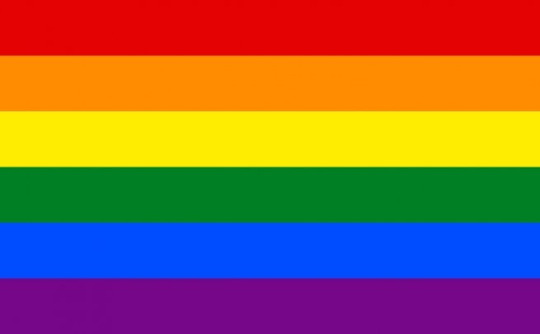
At the request of Harvey Milk, Gilbert Baker designed a symbol of pride for the gay community to debut at the 1979 San Francisco Gay Freedom Day (at the time, gay was an umbrella term that included what we now would call the queer community). The original flag included 8 colors.
When Harvey Milk was assassinated, many wanted the Pride flag he commissioned as a symbol of the community. Demand was so great that there wasn’t enough hot pink fabric, and then to keep the design balanced, turquoise was also dropped.
This 6-color striped flag is recognized as a symbol by queer people around the world no matter who they are, how they define, or who they love.
Here are the meanings behind the colors in the Pride flag:
Red = Life
Orange = Healing
Yellow = Sunlight
Green = Nature
Blue = Harmony
Violet = Spirit
1995 – Polyamory Pride flag
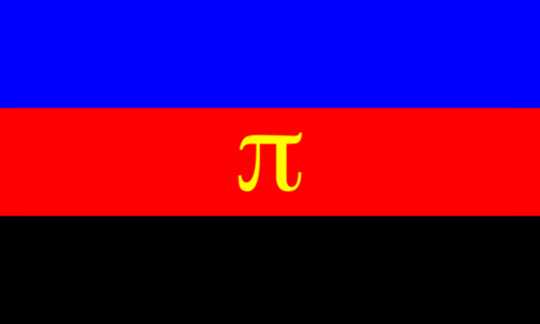
Designed by Jim Evans
Blue : representing openness and honesty among all partners
Red : representing love and passion
Black : representing solidarity with those who must hide their polyamorous relationships from the outside world
In the center of the flag is a gold Greek lowercase letter "pi", as the first letter of "polyamory". Gold represents "the value that we place on the emotional attachment to others... as opposed to merely primarily physical relationships".
There have been a number of alternative flags developed by the polyamory community since 1995 that incorporate both the original colors and the infinity heart sign, which represents the infinite love for multiple partners at the same time. The heart represents love and the lemniscate represents openness rather than infinity/ eternity.

1998 – Bisexual Pride flag
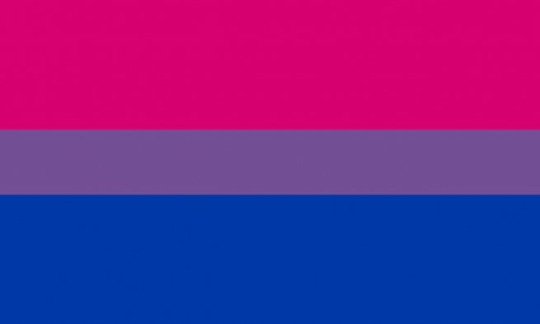
Michael Page designed this flag in order to raise the visibility of bisexuals, both in and out of the LGBT community. Page said the message of the flag was the idea that the purple blends into both the blue and pink in the same way that bisexual people often blend unnoticed into both gay and straight communities. The flag is inspired from the “biangles,” which are two overlapping triangles in the stereotypical colors for boys and girls.
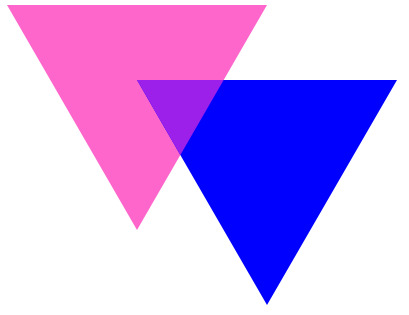
Michael wanted to avoid pink triangles as they were used by Nazi Germany to brand gay men. He also slightly changed the shades of the colors.
Page describes the meaning of the colors in the flag as:
Pink : represents sexual attraction to the same sex only (gay and lesbian)
Blue : sexual attraction to the opposite sex only (straight)
Purple : the resultant overlap color represents sexual attraction to both sexes (bi)
2000 – Transgender Pride flag

Monica Helms, a trans woman, designed this flag and it was first flown at the 2000 Pride Parade in Phoenix.
Monica explains, “The pattern is such that no matter which way you fly it, it will always be correct. This symbolizes us trying to find correctness in our own lives.”
Light blue is the traditional color for baby boys
Pink is for girls
White in the middle is for those who are transitioning, those who feel they have a neutral gender or no gender, and those who are intersex
Late 2000’s – Ally Pride flag

The “A” represents allies & activism and it’s in the rainbow colors that represents the queer community.
The black and white bars represent opposites, since allies are cis & attracted to opposite sex/gender on the binary
2010 – Pansexual Pride flag

This flag is used to increase visibility and recognition of the pansexual community, and to distinguish it from bisexuality. The pansexual flag consists of three colored horizontal bars.
Pink : represents those who identify within the female spectrum (regardless of biological sex)
Blue : represents those who identify within the male spectrum (regardless of biological sex)
Yellow : represents non-binary attraction, such as androgynous, agender, bigender and genderfluid people.
2010 – Asexual Pride flag
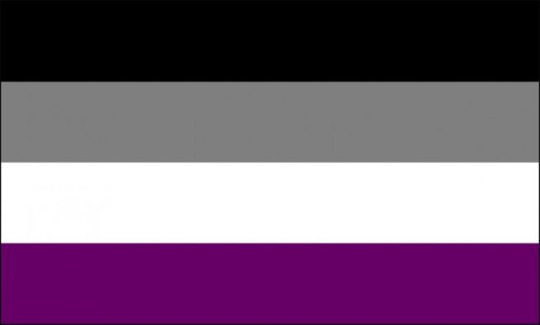
A contest was held to create an Asexual Flag. A flag of striped colors was chosen as it fits with the designs of most other Pride flags and avoids controversy that could be had if symbols were included.
Black: Asexuality.
Grey: Grey-Asexuality and Demisexuality.
White: Non-asexual partners and allies.
Purple: Community
2011 – Genderqueer Pride flag

Created by Marilyn Roxie. For people who are uncomfortable with the word “queer,” they refer to this as a nonbinary flag
Lavender – androgyny
White – agender
Green – nonbinary
2012 – Genderfluid Pride flag
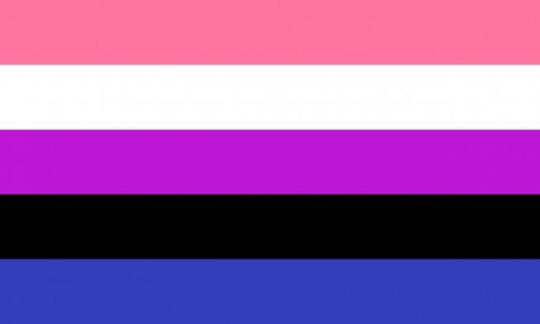
JJ Poole created this flag.
Pink : feminity
Blue : masculinity
Purple : both masculinity & feminity
Black : lack of gender
White : for all genders
2012 – Polysexual Pride flag

A Tumblr user who is a poly individual with the signature “Samlin” submitted this design. He made it similar to the bi and pan flags, since they’re all in under the multisexual umbrella.
Samlin felt it important distinguish polysexuals from the others--Bi who are attracted to people from 2 genders, and Pan who are attracted to people regardless of gender. Poly is someone who is sexually attracted to multiple, but not all, genders.
The flag uses the blue and pink, as does the bi & pan flags, but replaces the purple and yellow stripes with a green one.
Pink: attraction to female-identified people.
Green: attraction to people who identify outside the traditional male-female binary.
Blue: attraction to male-identified people
2013 – Demisexual Pride flag
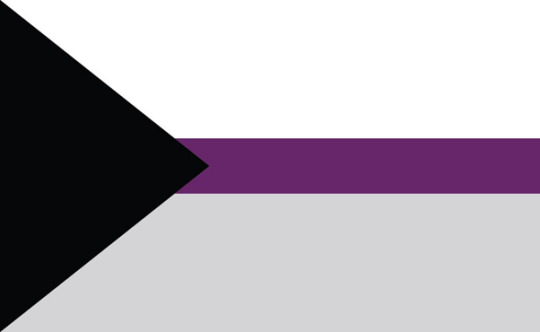
Similar colors to the Asexual Pride flag, the Demisexual Pride flag was created specifically to represent those with “a sexual orientation in which someone feels sexual attraction only to people with whom they have an emotional bond”
Black stands for asexuality
Grey represents Gray-Ace and demisexuality
White represents sexuality
Purple represents community
2013 – Intersex Pride flag
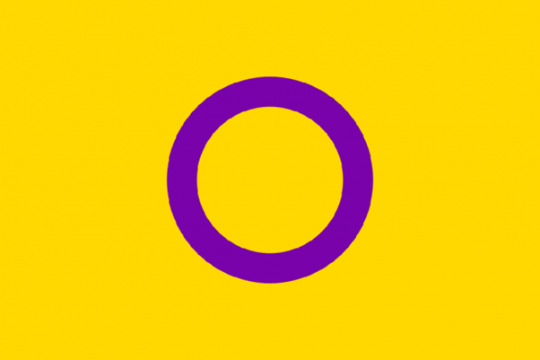
The intersex flag was created by Morgan Carpenter of Intersex Human Rights Australia.
The flag features nongendered colors that celebrate living outside the binary. The circle means unbroken, whole, complete.
2014 – Agender Pride flag
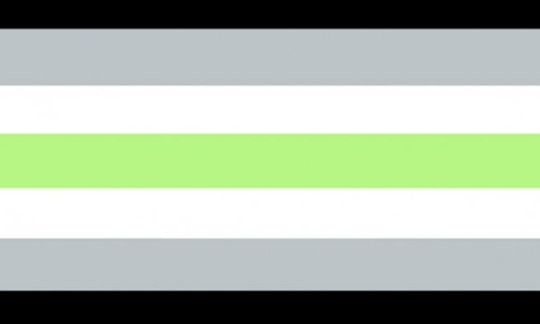
Created by Salem X, this flag has seven horizontal stripes.
The black and white stripes represent an absence of gender (instead of being blue & pink)
The gray represents semi-genderlessness
The central green stripe represents nonbinary genders because it is the inverse of purple and purple is a mix of blue & red which often are used to identify m/f binary.
2014 – Nonbinary Pride flag
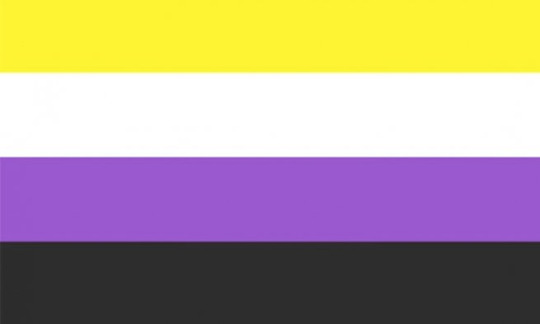
Created by activist Kye Rowan, it is intended to go alongside Marilyn Roxie’s genderqueer flag, not to replace it. Each stripe color represents different types of non-binary identities:
Yellow is for those whose gender exists outside or without reference to the gender binary, because yellow is often seen to distinguish something as its own
White is for those with many or multiple genders as white represents the presence of color or light
Purple for those who feel their gender is a mixture of both male and female genders as purple is the mix of traditional boy & girl colors. The purple also could be seen as representing the fluidity and uniqueness of nonbinary people.
Black is for individuals who feel they are without gender, as black is the absence of color or light
2014 – Aromantic Pride flag
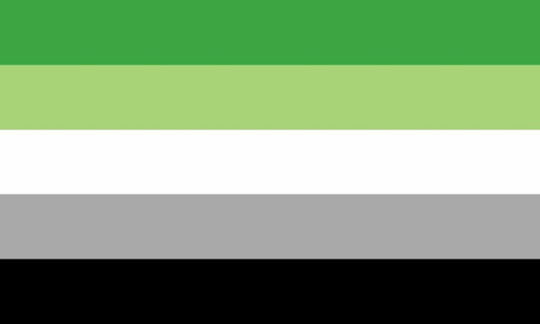
The Aro community worked together to create a flag and redesigned it several times before eventually landing on this 5-striped flag. Here’s the meaning of the stripes:
Green – Aromantic. This color chosen because it’s the opposite of red, which is commonly used to indicate romance
Light Green – represents that there is an aro spectrum, not everyone is 100% aro
White – Platonic relationships
Gray – represents gray-romantic (experiences romantic attraction, but not often) and demiromantic (can experience romantic attraction after forming an emotional connection with a person)
Black – represents the sexuality spectrum (aro people can have any sexual orientation)
2017 – Philadelphia People of Color Inclusive Flag
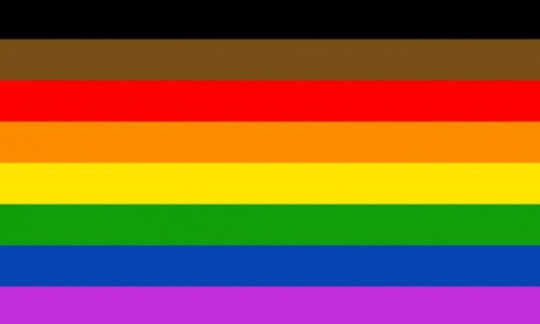
Noting that people of color are often not fully included in the queer community, Philadelphia added the black and brown stripes and flew the flag outside City Hall for Pride Month.
While the impulse to be more inclusionary is good, this flag sparked controversy as the traditional flag already was meant to include all LGBTQ people and none of the other colored stripes represent skin color. And some people argued additional stripes should be added, such a white stripe for white people.
In times when people of color need to be lifted & highlighted, this flag does a good job.
2018 – Lesbian Pride flag
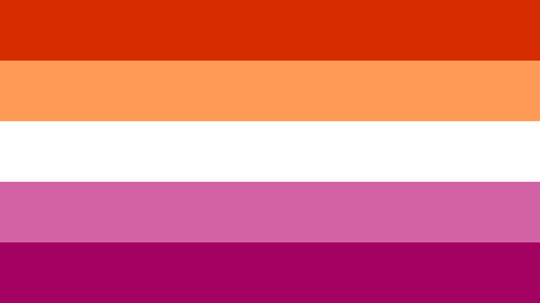
You’ll find a lesbian flag from 2010 included in the list of flags for gender and sexual minorities, however it’s not common for lesbians to use that flag. The reason is that pink flag was seen as representing those who have a more feminine gender expression (lipstick lesbians), which means it didn’t feel inclusive to much of the lesbian community.
A new flag for the lesbian community was introduced in 2018, one with much less pink and meant to represent all lesbians, not just a subset. It seems to be on its way to being better accepted, but we’ll see. Each color represents key aspects of lesbianism:
Transgressive Womanhood
Community
Gender Nonconformity
Freedom
Love
2018 - Progress Pride Flag

Inspired by the Philadelphia People of Color Inclusive Flag, Daniel Quasar added a 5-color chevron to the traditional LGBT Rainbow Flag as a way to emphasize greater inclusion and progress.
The traditional 6 color stripes are retained so as not to take away from their original meanings.
The additional stripes added to the left side of the flag are meant to look like an arrow to represent forward movement because more progress is needed.
The pink, light blue and white are from the Transgender Pride Flag.
The black & brown stripes represent LGBT communities of color and those living with & who’ve been lost to AIDS.
253 notes
·
View notes
Note
I always log off when I see discourse about parasocial relationships because I feel a lot of the discussion on here lacks nuance and it quickly divulges into people mud slinging and getting onto their high horses. Also no offense to others on here but as a black woman in fandom (particularly this one), racism (both in show and in fandom) has always been more concerning to me and it does hurt that it rarely gets addressed (like I hear about parasocial relationships every other week but I'm lucky if people here ever discuss racism even once a month). It's like wow white people can post essays and link videos about parasocial relationships but can barely put together a sentence about racism
I agree with what you say so much, as a poc I think that the spn fandom more than anything has made me realise how racist the fandom environment is and always has been. like for example when the cw campaign happened most people were talking about destiel not going canon as homophobic? ignoring castiel is erasure for sure but the cw had so much more concerning behaviour, like when the Black writer for superman and lois was fired after calling out racism and sexism in the writers’ room. I think that the show itself centers whiteness with such thoughtless ease that it makes it easy for the audience to not even concern themselves with any race issues at all.
I don’t know about the current spn demographic but I’m going to assume that while the fandom has more poc than before, it’s still predominantly white. and the post-nov 5 makeup of the fandom in particular are especially like, very young and the internet has changed so that media consumption is less about self-indulgence but interrogating the meaning and context (which is fantastic). this means that parasocial relationships are easier for white people to talk about because it affects them, and it’s exacerbated by the fact that internet communities favour the memetic type of content that’s repeated and repackaged again and again. parasocial relationships are very common experiences in everyone’s life, and is mostly benign. racism is also experienced by many people but not everyone, and it’s always deeply traumatic and harmful. i think a lot of white people are uncomfortable to talk about race. i would love to see more discussions around racism in the fandom beyond a glib remark or two when backing up statements about spn’s homophobia, bc racism is the most severe issue in spn without a doubt.
i will say that part of my wariness when talking about parasocial relationships (and in particular, the nature of spn conventions) comes from the fact that as a poc i do not believe that these are safe spaces for us. there’s a specific tone in these environments which i find hard to describe - it’s like, in order to levy criticism and/or adoration we must offer up personal trauma, expose the abjection we experience etc. and i think it’s a much more validating experience for people who’re seen as “normal” by society who can come in here and be like no i actually experience so-and-so!!! like to be queer or neurodivergent, to a certain extent, means that there’s erasure and invalidation and the internet is built in a way to let people validate themselves by having that be their visible identity in bios and usernames etc. meanwhile it’s far less validating for poc whose identity is already 100% visible just from our faces and skin colour in real life, and it’s a different kind of discrimination, and i think that’s why some poc don't like doing it as much.
(i love talking about race with my irls or on twitter but i always feel like i cannot do it on tumblr bc i always feel like spn tumblr is such a distinctly vulnerable place for white queer people and I'm infringing on their property lmao. which is a wild belief i have but i can't shake it away)
in the end i think it’s a very smart choice to disengage with unnecessary discourse, and thanks for this very good ask <3. sorry for using it to ramble for so long lol. to summarise i do think that the spn fandom has racism problems and i do understand people’s different reactions to it. i’d like more discussions about race. as for parasocial relationships - nothing wrong with it inherently unless it’s affecting your life negatively tbh. i’d like to see more nuance and more well thought out discussions about this though, i’m not very well versed in it.
6 notes
·
View notes
Note
controversial opinions?
Cold pizza actually not good. Tastes like angry bacteria.
There’s a completely separate class of gay men who are in a different, rainbow-tinted plane of reality from the rest of us and I don’t like them. They push for “acceptance” via commercialization of the Pride movement, assimilation through over-exposure, and focus on sexualizing the movement to be “provocative” and writing annoying articles that reek of class privilege instead of something actually important like lgbtqa youth homelessness, job discrimination, and mental health awareness.
Coleslaw is good. You guys just suck in the kitchen.
Generational divides ARE real: a 16-year-old and a 60-year-old right now in 2021 could agree on every hot button sociopolitical topic and yet not even realize it because they communicate in entirely different ways.
Sam Wilson is a power bottom. No I will not elaborate.
Allison’s makeover in The Breakfast Club good, not bad. She kept literally and metaphorically dumping her trash out onto the table and it’s clearly a cry for help. Having the attention and affection of a smart, pretty girl doing her makeup for her was sweet and helped her open up to new experiences. Not every loner wants to BE a loner (see: Bender, who is fine being a lone wolf).
Movie/show recommendations that start with a detailed “representation” list read like status-effecting gear in an RPG and it’s actually a turn-off for me. I have to force myself to give something a try in spite of it.
Yelling at people to just “learn a new language” because clearly everyone who isn’t you and your immediate vicinity of friends must be a lazy ignorant white American is so fucking stupid, like I get it, you’re mad someone doesn’t immediately know how to pronounce your name or what something means. But I know 2 languages and am struggling with a 3rd when I can between 2 jobs and quite frankly, I don’t have the time to just absorb the entire kanji system into my brain to learn Japanese by tomorrow night, or suddenly learn Arabic or Welsh. There are 6500 recorded languages in the world, what’s the chance that one of 3 I’ve learn(ed?) is the one you’re yelling at me about. Yes this is referring to that post yelling at people for not knowing how to pronounce obscure Irish names and words. Sometimes just explaining something instead of admonishing people for not knowing something inherently in the belief that everyone must be lazy entitled privileged people is uh... better?
Stop fucking yelling at people. I despise feeling like someone is yelling at me or scolding me, it triggers my Violence Mode, you don’t run me, you are not God, fuck off. Worst fucking way to "educate” people, it just feels good in the moment to say or write and doesn’t help. Yes I’ve done it before.
Violence is good actually.
Characters doing bad things ≠ an endorsement of bad things. Characters doing bad things that are unquestioned by the entire rest of the cast = endorsement of bad things, or at the least, a power fantasy by the creator. See: Glee, in which Sue’s awfulness is constantly called out, while Mr. Shue’s awfulness rarely is because he’s “the hero.” See also: the Lightbringer series, in which the protagonist is a violent manipulator who is praised as clever, charming, diplomatic, and genius by every supporting character (enemies included), despite the text never demonstrating such.
Euphoria is good, actually. It falls into this niche of the past decade of “dark gritty teen shows” but actually has substance behind it, but the general vibe I get from passive-aggressive tumblr posts from casual viewers is that this show is The Devil, and the criticism of its racier content screams pearl-clutching “what about the children??” to me.
Describing all diagnosed psychopaths as violent criminals is a damaging slippery slope, sure. But I won’t be mad at anyone for inherently distrusting another human who does not have the ability to feel guilt and remorse, empathy, is a pathological liar, or proves to be cunning and manipulative.
It’s actually not easy to unconditionally support and love everyone everywhere when you’ve actually experienced the World. Your perspective and values will be challenged as you encounter difficult people, experience hardship, are torn between conflicting ideas and commitments, and fail. My vow to never ever call the cops on another black person was challenged when an employee’s boyfriend marched into the kitchen OF AN ESTABLISHMENT to scream at her, in a BUSINESS I MANAGED, and threaten to BEAT the SHIT out of her. Turns out I can hate cops and hate that motherfucker equally, I am more than capable of both.
Defending makeup culture bad, actually. Enjoy it, experiment, master it, but don’t paint it as something other than upholding exactly what they want from you. Even using makeup to “defy the heteropatriarchal oppressors!” is still putting cash in their pockets, no matter how camp...
Not every villain needs to be redeemed, some of you just never outgrew projecting yourself onto monsters and killers.
Writing teams and networks queerbaiting is not the same as individuals queerbaiting. Nick Jonas performing exclusively at gay clubs to generate an audience really isn’t criminal; if they paid to go see him, that’s on them, he didn’t promise anyone anything other than music and a show. Do not paint this as similar to wealthy, bigoted executives and writing teams trying to snatch up the LGBTQA demographic with vague ass marketing and manipulative screenplays, only to cop out so as not to alienate their conservative audiences. And ESPECIALLY when the artists/actors/creators accused of queerbaiting or lezploitation then come out as queer in some form later on.
Queer is not a bad word, and I’ve no clue how that remains one of few words hurled at LGBTQA people that can’t be reclaimed. It’s so archaic and underused at this point that I don’t get the reaction to it compared to others.
People who defend grown-woman Lorelai Gilmore’s childish actions and in the same breath heavily criticize teenage religious abuse victim Lane Kim’s actions are not to be trusted. Also Lane deserved better.
Keep your realism out of my media, or at least make it tonally consistent. Tired of shows and movies and books where some gritty, dark shit comes out of nowhere when the narrative was relatively Romantic beforehand.
Actually people should be writing characters different from themselves, this new wave in the past year of “If you aren’t [X] you shouldn’t be writing [X]” is a complete leap backward from the 2010s media diversity movement. And if [X] has to do with an invisible minority status (not immediately visible disabilities, or diverse sexual orientations and gender identities, persecuted religious affiliations, mental illness) it’s actually quite fucked up to assume the creator can’t be whatever [X] is or to demand receipts or details of someone’s personal life to then grant them “permission” to create something. I know, we’re upset an actual gay actor wasn’t casted to play this gay character, so let’s give them shit about it: and not lose a wink of sleep when 2 years later, this very actor comes out and gives a detailed account of the pressure to stay closeted if they wanted success in Hollywood.
Projecting an actor’s personal romantic life and gender identity onto the characters they play is actually many levels of fucked up, and not cute or funny. See: reinterpreting every character Elliot Page has played through a sapphic lens, and insulting his ability to play straight characters while straight actors play actual caricatures of us (See also: Jared Leto. Fuck him).
I’m fucking sick of DaBaby, he sucks. “I shot somebody, she suck my peepee” that’s 90% of whatever he raps about.
“Political Correctness” is not new. It was, at one point, unacceptable to walk into a fine establishment and inform the proprietor that you love a nice firm pair of tits in your face. 60 years ago, such a statement would get you throw out and possibly arrested under suspicion of public intoxication. But then something happened and I blame Woodstock and Nixon. And now I have to explain to a man 40 years my senior that no, you can’t casually mention to the staff here, many of whom are children, how you haven’t had a good fuck in a while. And then rant about the “Chinese who gave us the virus.” Can’t be that upset with them if you then refused to wear your mask for 20 minutes.
Triggering content should not have a blanket ban; trigger warnings are enough, and those who campaign otherwise need to understand the difference between helping people and taking away their agency. 13 Reasons Why inspired this one. Absolutely shitty show, sure, but it’s a choice to watch it knowing exactly what it contains.
Sasuke’s not a fucking INTJ, he’s an ISFP whose every decision is based off in-the-moment feelings and proves incapable of detailed and logical planning to accomplish his larger goals.
MCU critique manages to be both spot-on and pointless. Amazing stories have been told with these characters over the course of decades; but most of it is toilet paper. Expecting a Marvel movie to be a deeply detailed examination of American nationalism and imperialism painted with a colorful gauze of avant-garde film technique is like expecting filet mignon from McDonalds. Scarf down your quarter pounder or gtfo.
Disparagingly comparing the popularity and (marginal) success of BLM to another movement is anti-black. It is not only possible but also easy to ask for people’s support without throwing in “you all supported BLM for black people but won’t show support for [insert group]” how about you keep our name out your mouth? Black people owe the rest of the world nothing tbh until yall root out the anti-blackness in your own communities.
It is the personal demon/tragic flaw of every cis gay/bi/pan man to externalize and exorcize Shame: I’m talking about the innate compulsion to Shame, especially in the name of Pride and Progress. Shame for socioeconomic “success,” shame for status of outness, shame for fitness and health, shame for looks, shame for style and dress, shame for how one fits into the gender binary, shame for sexual positions and intimacy preferences, shame for fucking music tastes. Put down the weapon that They used to beat you. Becoming the Beater is not growth, it’s the worst-case scenario.
Works by minorities do not have to be focused on their marginalized identities. Some ladies want to ride dragons AND other ladies. The pressure on minorities to create the Next Great Minority Character Study that will inevitably get snuffed at the Oscars/Peabody Awards is some bullshit when straight white dudes walk around shitting out mediocre screenplays and books.
Canadians can stfu about how the US is handling COVID-19 actually. Love most of yall, but the number of Canadian snowbirds on vacation (VACATION??? VA.CAT.ION.) in the supposed “hotbed” of my region that I’ve had to inform our mask policies and social distancing to is ASTOUNDING. Incroyable! I guess your country has a sizable population of entitled, privileged, inconsiderate, wealthy, and ignorant people making things difficult for everyone, just like mine :)
No trick to eliminate glasses fog while wearing my mask has worked, not a single one, it actually has affected my job and work speed and is incredibly frustrating, and I have to deal with it and pretend it’s not a problem while still encouraging others to follow the rules for everyone’s safety and the cognitive dissonance is driving me insane.
It’s really really really not anti-Japanese... to be uncomfortable with the rampant pedophilia in manga and anime, and voice this. I really can’t compare western animation’s sneakier bullshit with pantyshots of a 12-year-old girl.
Most of the people in the cottagecore aesthetic/tag have zero interest in all the hard work that comes with maintaining an isolated property in the countryside, milking cows and tending crops before sunrise, etc. And that’s okay? They just like flowers and pretty pottery and homemade pastries. Idk where discourse about this came from.
You think mint chip ice-cream tastes like toothpaste because you’re missing a receptor that can distinguish the flavors, and that sucks for you. It’s a sort of “taste-blindness” that can make gum spicy to some while others can eat a ghost pepper without crying.
Being a spectacle for the oppressive class doesn’t make them respect us, it makes them unafraid of us. This means they continue to devour us, but without fear of our retaliation.
Only like 4 people on tumblr dot com are actually prepared for the full ramifications of an actual revolution. The rest of you just really imprinted onto Katniss, or grew up in the suburbs.
Straight crushes are normal. They’re people first, sexual orientation second. Can’t always know.
The road to body positivity is not easy, especially if what you desire is what you aren’t.
You’re actually personally responsible for not voluntarily bringing yourself into an environment that you know is not fit for you unless you have the resolve to manage it. Can’t break a glass ceiling without getting a few cuts. This one’s a shoutout to my homophobic temp coworkers who decided working a venue with a drag show would be a good idea. This is also is a shoutout to people who want to make waves but are surprised when the boat tips. And also a shoutout to people who—wait that’s it’s own controversial opinion hold up.
Straight people can and should stay the fuck out of gay bars and queer spaces. “yoUrE bEInG diVisiVe” go fuck yourself.
3 notes
·
View notes
Link
“BUTCH” HAS LONG been the name we’ve given a certain kind — that kind — of lesbian. The old adage applies: You know her when you see her. She wears men’s clothing, short hair, no makeup. Butch is an aesthetic, but it also conveys an attitude and energy. Both a gender and a sexuality, butchness is about the body but also transcends it: “We exist in this realm of masculinity that has nothing to do with cis men — that’s the part only we [butches] know how to talk about,” says the 42-year-old writer, former Olympic swimmer and men’s wear model Casey Legler. “Many people don’t even know how to ask questions about who we are, or about what it means to be us.”
Many of us wear the butch label with a certain self-consciousness, fearing the term doesn’t quite fit — like a new pair of jeans, it’s either too loose or too tight. The graphic novelist Alison Bechdel, 59, doesn’t refer to herself as butch but understands why others do. “It’s a lovely word, ‘butch’: I’ll take it, if you give it to me,” she says. “But I’m afraid I’m not butch enough to really claim it. Because part of being butch is owning it, the whole aura around it.”
What does owning it look like? Decades before genderless fashion became its own style, butches were wearing denim and white tees, leather jackets and work boots, wallet chains and gold necklaces. It isn’t just about what you’re wearing, though, but how: Butchness embodies a certain swagger, a 1950s-inspired “Rebel Without a Cause” confidence. In doing so, these women — and butches who don’t identify as women — created something new and distinct, an identity you could recognize even if you didn’t know what to call it.
By refuting conventionally gendered aesthetics, butchness expands the possibilities for women of all sizes, races, ethnicities and abilities. “I always think of the first butch lesbian I ever saw,” says the 33-year-old actor Roberta Colindrez. “This beautiful butch came into the grocery store and she was built like a brick house. Short hair, polo shirt, cargo pants and that ring of keys … It was the first time I saw the possibility of who I was.” And yet, to many people, “butch style” remains an oxymoron: There’s a prevalent assumption that we’re all fat, frumpy fashion disasters — our baseball caps and baggy pants suggest to others that we don’t care about self-presentation. But it’s not that we’re careless; it’s that unlike, say, the gay white men who have been given all too much credit for influencing contemporary visual culture, we’re simply not out to appease the male gaze. We disregard and reject the confines of a sexualized and commodified femininity.
ETYMOLOGICALLY, “butch” is believed to be an abbreviation of “butcher,” American slang for “tough kid” in the early 20th century and likely inspired by the outlaw Butch Cassidy. By the early 1940s, the word was used as a pejorative to describe “aggressive” or “macho” women, but lesbians reclaimed it almost immediately, using it with pride at 1950s-era bars such as Manhattan’s Pony Stable Inn and Peg’s Place in San Francisco. At these spots, where cocktails cost 10 cents and police raids were a regular occurrence, identifying yourself as either butch or femme was a prerequisite for participating in the scene.
These butches were, in part, inspired by 19th-century cross-dressers — then called male impersonators or transvestites — who presented and lived fully as men in an era when passing was a crucial survival tactic. We can also trace butchness back to the androgynous female artists of early 20th-century Paris, including the writer Gertrude Stein and the painter Romaine Brooks. But it wasn’t until the 1960s and early 1970s that butches, themselves at the intersection of the burgeoning civil, gay and women’s rights movements, became a more visible and viable community.
From their earliest incarnations, butches faced brutal discrimination and oppression, not only from outside their community but also from within. A certain brand of (mostly white) lesbian feminism dominant in the late ’70s and early ’80s marginalized certain sorts of “otherness” — working-class lesbians, lesbians of color and masculine-of-center women. They pilloried butchness as inextricably misogynist and butch-femme relationships as dangerous replications of heteronormative roles. (Such rhetoric has resurfaced, as trans men are regularly accused of being anti-feminist in their desire to become the so-called enemy.) Challenged yet again to defend their existence and further define themselves, butches emerged from this debate emboldened, thriving in the late ’80s and early ’90s as women’s studies programs — and, later, gender and queer studies departments — gained traction on North American and European college campuses.
The ’90s were in fact a transformative decade for the butch community. In 1990, the American philosopher Judith Butler published her groundbreaking “Gender Trouble: Feminism and the Subversion of Identity,” and her theories about gender were soon translated and popularized for the masses. In her academic work, Butler argues that gender and sexuality are both constructed and performative; butch identity, as female masculinity, subverts the notion that masculinity is the natural and exclusive purview of the male body. Soon after, butch imagery infiltrated the culture at large. The August 1993 issue of Vanity Fair featured the straight supermodel Cindy Crawford, in a black maillot, straddling and shaving the butch icon K.D. Lang. That same year, the writer Leslie Feinberg published “Stone Butch Blues,” a now classic novel about butch life in 1970s-era New York. In Manhattan, comedians such as Lea DeLaria and drag kings such as Murray Hill took to the stage; it was also the heyday of Bechdel’s “Dykes to Watch Out For,” the serialized comic strip she started in 1983. In 1997, Ellen DeGeneres, still the most famous of butches, came out. Two years later, Judith “Jack” Halberstam and Del LaGrace Volcano published “The Drag King Book” and the director Kimberly Peirce released her breakthrough film, “Boys Don’t Cry”; its straight cisgender star, Hilary Swank, went on to win an Oscar for her portrayal of Brandon Teena, a role that still incites contentious debates about the nebulous boundaries between butch and trans identity. These artists and their legacies are the cornerstones of our community. As Legler says, “This is where we’ve come from, and the folks we look back to. If you identify with that lineage, then we’d love to have you.”
LIKE ANY QUEER subculture, butchness is vastly different now than it was three decades ago — though the codes have been tweaked and refined over the years, younger butches continue to take them in new and varied directions: They may experiment with their personas from day to day, switching fluidly between masculine and feminine presentation. There are “stone butches,” a label that doesn’t refer to coldness, as is often assumed, but to a desire to touch rather than to be touched — to give rather than receive — and is considered slightly more masculine than “soft butch” on the Futch Scale, a meme born in 2018 that attempted to parse the gradations from “high femme” to “stone butch.” (“Futch,” for “femme/butch,” is square in the middle.) And while there remains some truth to butch stereotypes — give us a plaid flannel shirt any day of the week — that once-static portrait falls apart under scrutiny and reflection. Not every butch has short hair, can change a tire, desires a femme. Some butches are bottoms. Some butches are bi. Some butches are boys.
Different bodies own their butchness differently, but even a singular body might do or be butch differently over time. We move between poles as our feelings about — and language for — ourselves change. “In my early 20s, I identified as a stone butch,” says the 45-year-old writer Roxane Gay. “In adulthood, I’ve come back to butch in terms of how I see myself in the world and in my relationship, so I think of myself as soft butch now.” Peirce, 52, adds that this continuum is as much an internal as an external sliding scale: “I’ve never aspired to a binary,” she says. “From day one, the idea of being a boy or a girl never made sense. The ever-shifting signifiers of neither or both are what create meaning and complexity.”
Indeed, butch fluidity is especially resonant in our era of widespread transphobia. Legler, who uses they/them pronouns, is a “trans-butch identified person — no surgery, no hormones.” Today, the interconnected spectrums of gender and queerness are as vibrant and diverse in language as they are in expression — genderqueer, transmasc, nonbinary, gender-nonconforming. Yet butches have always called themselves and been called by many names: bull dyke, diesel dyke, bulldagger, boi, daddy and so on. Language evolves, “flowing in time and changing constantly as new generations come along and social structures shift,” Bechdel says.
If it’s necessary to think historically, it’s also imperative to think contextually. Compounding the usual homophobia and misogyny, black and brown butches must contend with racist assumptions: “Black women often get read as butch whether they are butch or not,” Gay says. “Black women in general are not seen, so black butchness tends to be doubly invisible. Except for studs: They’re very visible,” she adds, referring to a separate but related term used predominantly by black or Latinx butches (though, unsurprisingly, white butches have appropriated it) who are seen as “harder” in their heightened masculinity and attitude. Gay notes that “people tend to assume if you’re a black butch, you’re a stud and that’s it,” which is ultimately untrue. Still, butch legibility remains a paradox: As the most identifiable of lesbians — femmes often “pass” as straight, whether they want to or not — we are nonetheless maligned and erased for our failure of femininity, our refusal to be the right kind of woman.
ANOTHER LINGERING stereotype, one born from “Stone Butch Blues” and its more coded literary forebears, particularly Radclyffe Hall’s “The Well of Loneliness” (1928), is the butch as a tragic and isolated figure. She is either cast out by a dominant society that does not — will not — ever see her or accept her, or she self-isolates as a protective response to a world that continually and unrelentingly disparages her.
When a butch woman does appear in mainstream culture, it’s usually alongside her other: the femme lesbian. Without the femme and the contrast she underscores, the butch is “inherently uncommodifiable,” Bechdel says, since two butches together is just a step “too queer.” We rarely see butches depicted in or as community, an especially sobering observation given the closure of so many lesbian bars over the past two decades. But when you talk to butches, a more nuanced story emerges, one of deep and abiding camaraderie and connection. Despite the dearth of representation, butch love thrives — in the anonymous, knowing glances across the subway platform when we recognize someone like us, and in the bedroom, too. “Many of my longest friendships are with people who register somewhere on the butch scale,” Peirce says. “We’re like married couples who fell in love with each other as friends.”
Legler, for their part, recognizes a “lone wolf” effect, one in which some young queers initially love “being the only butch in the room.” In organizing the group portrait that accompanies this essay over the past months, Legler was curious “what it would be like for butches to just show up together and to be able to display all of their power, all of their sexiness, all of their charisma, without having it be mitigated in some way.” And not only for butches of an older generation, but for those still figuring things out, transforming the scene in ways that both defy and inspire their elders. “It’s been centuries in the making, the fact that we are all O.K.,” Legler adds. “That our bodies get to exist: We have to celebrate that. You can do more than just survive. You can contribute.”
44 notes
·
View notes
Text
6 Things Intersex Folks Need to Know About How We Perpetuate Anti-Black Racism
1. The Segregation in Our Intersex Movement Is Real
The intersex movement has been mostly white since day one. Consequently, it’s necessary to ask ourselves if we’ve inadvertently created an atmosphere that urges Black intersex people to put aside their Blackness — and the oppression linked to it — in order to focus on our collective goals.
In creating this type of environment, it appears our community hasn’t yet been able to connect the dots between Black and intersex people’s oppression — which Saifa reminded me are both rooted in state violence — and our liberation.
Black intersex folks who’ve lived in isolation and have dealt with segregation in their daily lives shouldn’t have to contend with similar experiences once they’ve finally found, and entered our community.
I’m not talking about highly visible institutionalized segregation like the Jim Crow era when Saifa’s uncle, who was also intersex, was forced to sleep outside on the porch of his hospital after a surgery.
I’m talking about the low-key, harder to detect, segregation.
The kind that just takes for granted that the majority of people in the room will always be white. The type that may have a few Black and Brown faces sprinkled here and there, but on a vanilla frosted cake. Is there a path forward?
Sean Saifa Wall, a Black trans intersex activist and collage artist based in Atlanta, reflected on this question by looking back on his time spent as the former board president of an intersex non-profit. Saifa captured why increasing representation shouldn’t be the endgame.
“I think I made the mistake of thinking we need more people of color… but what does institutionalized white supremacy do? It brings in Black or Brown faces who won’t challenge white supremacy — and that’s how white supremacy perpetuates itself. You don’t need white folks to perpetuate it, you just need folks who are invested in white supremacy.”
When I was younger and mistakenly believing that whiteness was the norm to strive towards, I ended up internalizing racist ideologies and, as a result, never fully connected on a truly deep BFF level with my Black friends. Perhaps our movement, and its longstanding quest for acceptance, has created a similar divide.
The global intersex activist network consists, to my knowledge, of less than only 5 Black intersex activists. One of them is Saifa.
2. One’s Race and Intersex Identity Overlap
Born amidst racist flames that attempted to level his neighborhood, Saifa was brought up whilst his borough, The Bronx, was attempting to rebuild itself.
“When I was younger,” Saifa recounted, “I realized I had a different body. Then, due to interactions with NYPD, I was made to know that I was different in another way as well.”
As he got older, Saifa came out as queer, intersex, and trans to a mother — and a world — who wasn’t always ready or eager to respect his intersecting identities. Regardless, his Blackness, sexuality, and intersex identity were always interwoven.
“I cannot separate my intersex identity from my Black identity,” Saifa said. And he shouldn’t have to.
Unfortunately, I’m afraid our community hasn’t figured out ways yet to allow people to show up as their whole selves.
For instance, on the international level, it’s become a known issue that intersex activists from African countries don’t get similar amounts of representation, or speaking time at gatherings. And nationally, our support group meetings rarely, if ever, have been led by Black intersex folks or had sessions dedicated solely for Black intersex community members to come together.
It’s only in the past few years that single Black folks are sitting on boards, or in staff positions of our organizations. There’s also never been, to my knowledge, any Black clinicians present at our Continuing Medical Education (CME) sessions that happen before our support group conferences each year.
Race, especially as it relates to anti-blackness, feels as though it’s at times an elephant in the room.
For me, this elephant peeped its head out when I realized it had become a tradition for one of our non-Black community members, who I love and cherish dearly, to sing Macy Gray’s “I Try” — in Gray’s uniquely raspy voice — at the annual talent show, which is supposed to provide a fun contrast to the rest of the conference.
The audience, if it’s a diverse year, might have a handful of Black folks. This year, there was only one person. I can’t imagine how isolating that experience might have been for them.
And this bring me back to the story I shared at the beginning, about the person who had Obama on a hit list.
Often, racism perpetuates itself by wearing the mask of a “joke” or “fun,” but racism is never a joke and the mask just presents one more hurdle in calling racism out.
It’s time us non-Black intersex people become more aware of our whiteness problem.
We need to keep having difficult conversations about race and oppression every step of the way.
Most importantly, we need to show up the few Black intersex people we do have in our small community, and check in with them to see if there’s anything else we could be doing to have their back.
We can challenge white supremacy in our movement just by asking Black intersex folks in our community what they need to feel safer in our collective spaces.
For our movement to be successful, it’s imperative that Black intersex folks feels they can participate as whole persons.
3. We’ve All Been Dehumanized
The list of atrocities against people of color, especially Black folks, carried out by the medical industrial complex and other agents includes: “the father of gynecology” using enslaved Black people as surgical research subjects, being disproportionately targeted by the US’s eugenic sterilization program that served as a catalyst for Nazi Germany’s and today’s “population control”policies, and the shackling of pregnant women inmates — who are disproportionately Black — in labor delivering children whom they most likely will be immediately separated from.
Likewise, intersex people have been rendered hermaphrodites and featured in freak shows, gawked at as monsters to at on TV, disproportionately put up for adoption, pumped with artificial hormones, robbed of their reproductive organs and genitalia, selectively aborted, raped, and brutally murdered.
Lynnell, a Black intersex lesbian activist, was born intersex but raised male by a single mother in a low-income household. She grew up in Chicago’s mostly Black, hypersegregated, South Side where her family — unlike mine on the North Side — was forced to deal with the effects of the city’s racist public policy and divestment responsible for the destruction of local economies, public schools and affordable housing.
Hyde Park, a pocket of wealth and whiteness on the South Side and home to the University of Chicago (UofC) Hospital, is where Lynnell’s mother took her as a child for doctor appointments.
Lynnell shared memories of that time stating, “My mom wasn’t given the tools she needed to make informed decisions.” As Lynnell grew older, she also “wasn’t taken seriously at first by [her doctors] either.”
Low-income and single mothers of color, labelled unfit by society, experience discrimination. Lynnell’s mother went to U of C seeking care, not charity, for her child. Seeing a golden opportunity, Lynnell’s doctors manipulated her mother’s financial status and turned the situation into a charity case anyway.
“They told my mom they were doing her a favor because they weren’t charging her.” In the doctor’s mind, they were participating in an equal trade with Lynnell and her mother.
To Lynnell, it was torture. “For eight years, every summer, for at least a month, I was put on different drugs, experimented on, given unnecessary procedures and manipulated.”
Exploitation of marginalized people by the MIC for their gains, especially in teaching environments, has been well-documented. Exploitation specific to Black intersex patients has yet to be researched. Lynnell’s doctors, I imagine, took one look at Lynnell’s mother and decided a poor Black woman wasn’t powerful enough stop what they had in store for Lynnell.
“I don’t know many white people that were used as guinea pigs like me,” Lynnell said.
4. Doctor’s Aren’t the Only People Attempting to Erase ‘Difference’
Intersex people are pretty familiar with secrecy, shame and stigma thanks to the pathologization of our bodies. As such, it’s important we have spaces to process our stories with each other. Yet, it’s important to note that as oppressed people, we are still capable of participating in the oppressing others.
The few times I’ve witnessed our community attempt to break down white supremacy and talk about racism, white intersex people successfully shifted the conversation, almost immediately, back to a conversation that centers them and their experience with intersex oppression.
Spaces where intersex people get together and talk are rare, so it makes sense why someone would want to relate and process, but in doing so, we are inadvertently preventing Black intersex folks in our community from expressing their unique experiences.
Saifa recounted a time when he “was trying to bring up the topics of anti-oppression, racism, etc., in the movement and people lost their damn minds. People were like, ‘we cannot hear it.’”
He also shared, “Anti-black racism showed up when I went to South Carolina on behalf of the MC case [a lawsuit involving the parents of a young Black intersex boy and his doctors] and one of the lawyers was condescending, talking down to me as the only Black person in the room. I was constantly pushing back against his patriarchy and racism.”
He continued, “I feel like people don’t care about issues related to anti-black racism in the intersex community.
“I think there’s some intersex people who really see those intersections, who really are affirming of people of color, but for the large part I feel that the level of anti-black racism awareness ranges from hostility to apathy.”
I asked if people ever seemed to care and he replied, “When funding is involved. That’s when people start to care more. Or, when a group wants some representation of diversity—but I found they wanted a Black face, but weren’t necessarily committed to issues around anti-Black racism.”
As a movement, we can’t only focus on these issues when funding dollars are at stake. That tokenizes Black folks.
Instead, we have to stitch anti-Black racism training, and education around white supremacy, into the fabric of our work together.
Saifa pointed out, “In the world, I’m confronted with anti-Blackness, and it’s par for the course, but it’s particularly more devastating when it’s from intersex people. Why? Because I think, ‘Oh, you understand.’
“Or at least I think they understand, until they say or do things that’s really racist and are unapologetic about their racism.”
5. We Need an Intersectional Analysis to Combat Racist Stereotypes
One of the white people present at Lynnell’s first intersex support group meeting recently told her that she was “afraid” of her at first, “because [Lynnell] had on leather and dark sunglasses.”
I asked Lynnell why she entered that support group meeting dressed in leather, sunglasses, and the rest of her leather daddy alter ego outfit. She responded, “Because I was the only Black intersex person there.”
Lynnell shouldn’t have to feel the need to protect herself like that in a room that was supposed to feel like home, a room where she was supposed to be able to let her guard down amongst people with similar experiences.
Unfortunately, this is the type of thing that can happen when a community doesn’t have a firm commitment to operating with an intersectional lens — one that places its most marginalized folks at the center.
Lynnell needed to protect herself at a support group, and in doing so, made a white person feel afraid, circles back to my main point.
We need to place Black intersex folks and their particular needs, struggles and desires at the front and center of our intersex activism.
If we don’t, we risk ostracizing Black intersex folks, again, within spaces meant to be a reprieve from shame and stigma.
6. Confronting White Supremacy Means Confronting Disembodiment
Disembodiment, or feeling detached from your body, often happens as a coping mechanism in response to intense trauma. Intersex activist, Mani Mitchell, once described it as feeling like a “floating head tugging around a body.”
Saifa, someone I admire for their commitment to somatic healing work, believes that white supremacy is rooted in disembodiment “because you have to be disembodied in order to not allow your self to be impacted by the inequity or suffering of others.”
Regardless, Saifa thinks it’s “imperative that white intersex activists feel their feelings regarding any shame they may have as they interrogate white supremacy and its brutal history.”
“It’s only fair that white intersex activists start to acknowledge, as much as their embodiment can hold, the shameful and disgusting emotions that come up after hearing the bitter truth and realities of Black folks and people of color.”
“Doing this work is difficult,” he acknowledged, “and it can bring up things we’d rather not have to face about ourselves.”
Still, non-Black intersex folks need to “confront those feelings and allow themselves to be impacted, then hopefully they can be motivated to action, and allow that empowerment to impact others.”
In taking Saifa’s advice, we can create positive ripple effects throughout our whole community. Doing the work to steer our movement towards becoming an intersectional, anti-racist, intersex movement is a win-win for everyone involved!
218 notes
·
View notes
Text
ethnic genocide is... kind of worse than the criminalization of queerness because like. if you kill all members of an ethnicity, like tutsis or palestinians or armenians or something, that's it, their culture is gone, they're dead. people of different ethnicities can't just rachel dolezal their way into it. the yahi died with ishi and the only remnants of the yahi are through works of the le guins' chronicling his life. it's tragic and it's unfixable. if hitler succeeded in decimating the jews and the romani, they would no longer exist. there are dozens, no, hundreds of native american tribes that were exterminated by the colonists. an estimated hundred million natives lived here before columbus came. and now? there's five million. there are less natives alive today than there were jews murdered during the holocaust. the white invaders killed about 8 times as many people as hitler did. even if the forced sterilizations didn't happen, and even if every single native american alive today got someone pregnant or been impregnated, and even if every single one of them did so with a person of a different ethnicity, and even if the infant mortality rate was zero, even including twins at 3%, even rounding up, even blessing all of them with immortality, even assuming all of them were old enough to consent to and have sex, there is still only a maximum of 6 million native americans able to be born every year. it would take a constant 15 years just to replace who was lost. an estimated 24% of women were sterilized so that's 17 years. if half of all babies had both a native mother and father, that's 24 years. infant mortality for natives is 9%, so that's 25. assuming minors comprise 1/6 of the population, that's 27 years. and keep in mind this doesn't even take into account all of the natives who were born FOR THE PAST 500 YEARS. it's disgusting what was done to them, but this isn't about just the natives even though holy shit I never put it into actual mathematical perspective before and I am significantly more enraged on their behalf than I was before, and that much more understanding of their own righteous fury. giving the land back is the bare fucking minimum for reparations. but anyway.
so yeah, ethnic genocide is really bad. and so is, you know, just for example, the aids crisis. 125,000 AT LEAST people died from aids. most were gay. half as much as corona victims, and 0.5% of the american populace. several people from that time period have said that it wiped out entire swathes of gay people. the entire gay community was decimated. but here we are 25 or so years later and the united states is just... absolutely saturated with queer people. lil nas x is the most popular musician right now. this is a good thing. we've bounced back. we've rebuilt. and we've been able to do so because cishets can give birth to queer kids, who grow up to become queer adults. you cannot get rid of us, because there will always be more of us.
homophobia is horrible of course, and every single government that criminalizes being gay should be erased [not the people because that is genocide which I have previously established as BAD, but governments are not people, they are just the artificial systems developed by the people in power], I don't condone any mass murder of any sort, and civil rights are human rights. I'm not disputing that. white gays don't fuckin REEE at me, I'm literally one of you.
but our experiences are incomparable to theirs.
and when I say "our", I obviously fucking know that there are plenty of Native American, Black, Latine, Asian, Middle Eastern, Slavic, Pacific Islander, and other various people of color who are also queer. I'm not a moron. I don't think that there's only white queers. if you had any reading comprehension at all you'd know that I'm comparing the experience of the white gay directly to the experience of the person of color because a predominant majority of people of color are cishets. and if "they're not cishet if they're from a culture that views gender and sexuality differently from us" then obviously their definitions of homosexual lesbian bi and trans are also different you dumb fuck so shut up and don't drum up any bullshit semantics discourse because I'm not reading any of it. when I say "our" I mean specifically people who have ONLY experienced discrimination based on their gender or sexuality and not any based on their ethnicity (and in the specific sphere of relevance in this post I'm only discussing queer affiliation and ethnicity, and this isn't to suggest that religion and ability and misogyny don't also affect these but I'm not going to talk about that right at this moment), for the sole purpose of making a point that is specifically about gender or sexuality and ethnicity. okay? you got it?
racism is an exponentially bigger problem.
they're both problems but they're not equal in scope. white queers have privilege over cishet poc in the same way visibly abled people have privilege over invisibly abled. you can't look at a person and immediately know if they're gay or trans but you CAN look at a person and know they're brown.
and you could theoretically kill every single queer person alive right now, but in 20 years there's just gonna be more of us. we're like a zucchini farm in that respect. we've always been here and we always will be here.
but you can't say the same for people of color.
ethnic genocide is a very real and very pressing matter that is currently affecting millions.
so it's our duty as white people to at the very goddamn least pay attention to what people of color are saying, and not say dumb shit that's racist, and point out to other people when they say dumb shit that's racist. and it's really easy to just, NOT fight brown people because you're gay and therefore just as oppressed. no. it just doesn't work that way.
black lives matter
protect asian lives
1 note
·
View note